When I first heard that Ibis was releasing a new Ripley, I’ll admit, I had mixed feelings. The Ripley v4 was one of my favorite bikes of all time – how would Ibis improve on near perfection?
The answer, of course, is by updating the geometry (with an additional size!), making it more versatile, and adding internal frame storage. On paper, this seems like the standard formula for updating any mountain bike these days. But in typical Ibis fashion, they’ve gone above and beyond with the details so that the new Ripley (and Ripmo) stand out amongst the crowd.
STOW Internal Storage
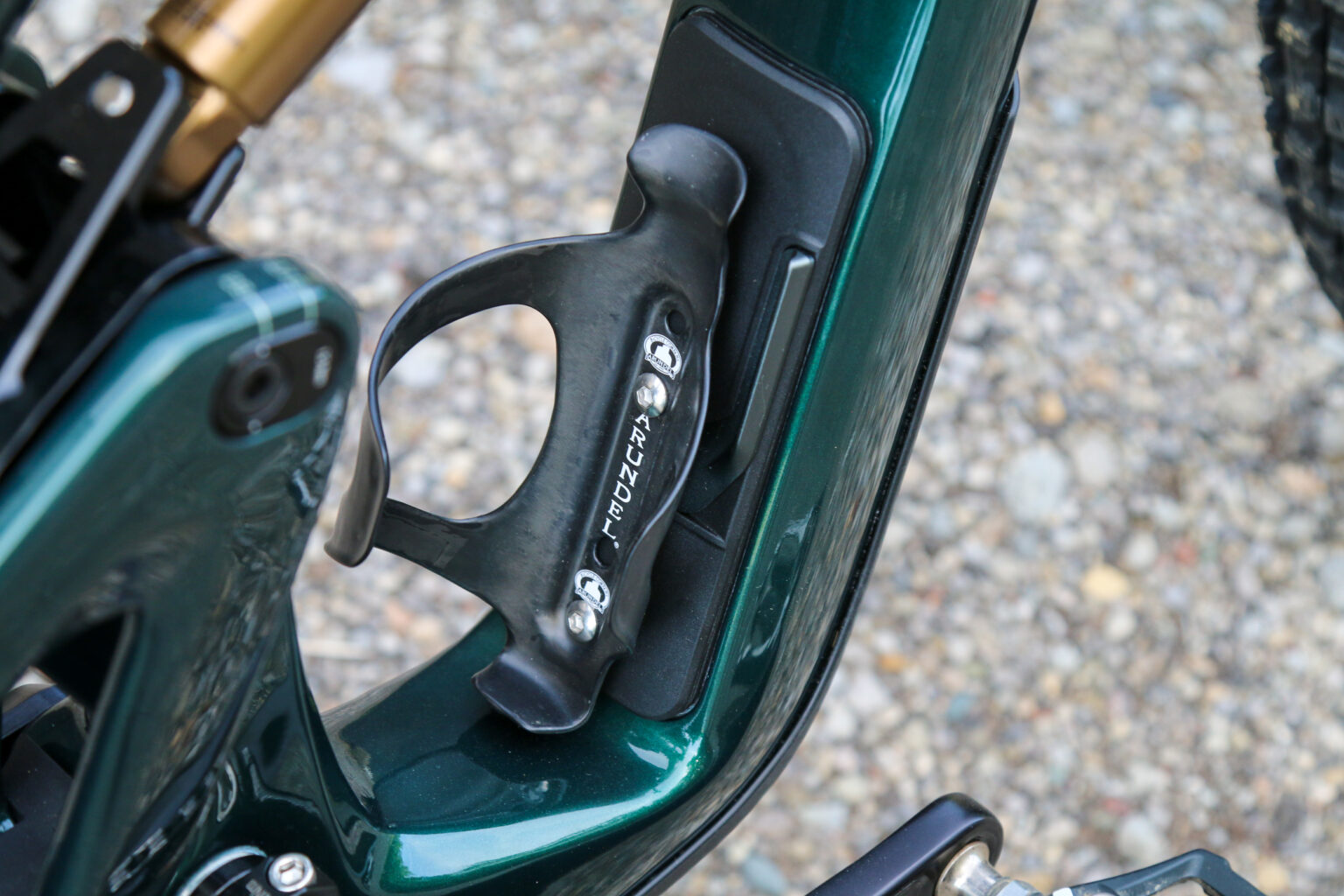
There’s a lot that’s changed on the new bike, but the most obvious has to be the addition of internal frame storage. Even today, this feature is a hotly debated topic. Some love the convenience of utilizing the space that’s already in the downtube for storing your tools, spare tubes, jackets, snacks, etc. Others argue that cutting a huge hole in the frame or more appropriately, molding around it, results in a compromise in build strength or frame weight, only to end up with storage that is hard to access, rattle-y, and potentially mold and mildew-prone.
Ibis did not take this decision lightly and spent over a year developing the internal storage system which was viewed as a completely separate project within the brand. In the process, Ibis tested everything they could get their hands on, which included visiting local bike shops to test out other systems. This included surveying riders about what they actually rode with, and even had a Google form to submit pictures of riders’ tool kits.
According to the brand, their Pork Chop bags were a successful alternative to internal frame storage, but they elicited a love-it or hate-it response. The bags also meant that riders on bigger frames would have more storage space than those on smaller frames. Hoping to give everyone equal frame storage, the Ibis STOW (Snacks, Tools, or Whatever) system was born.
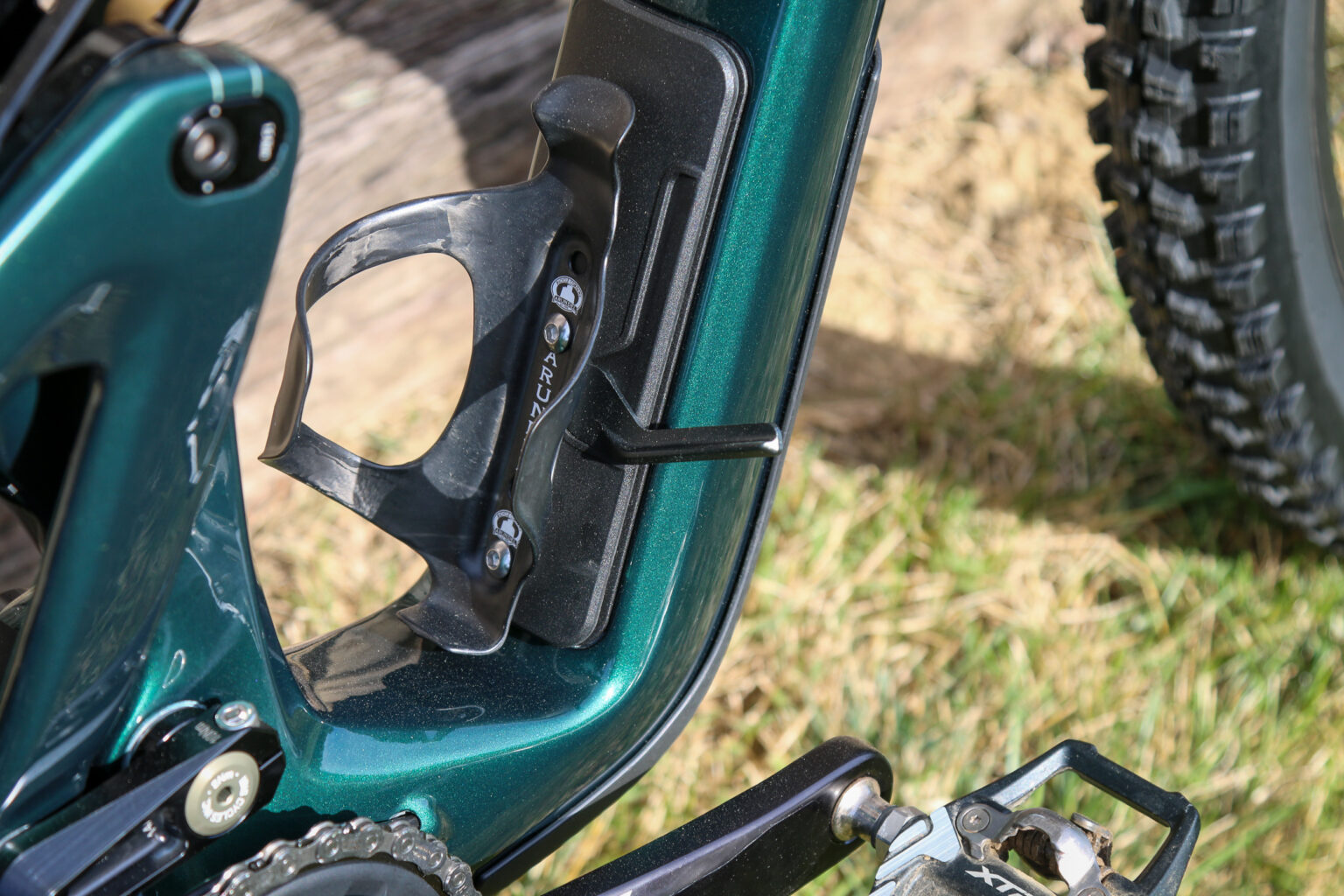
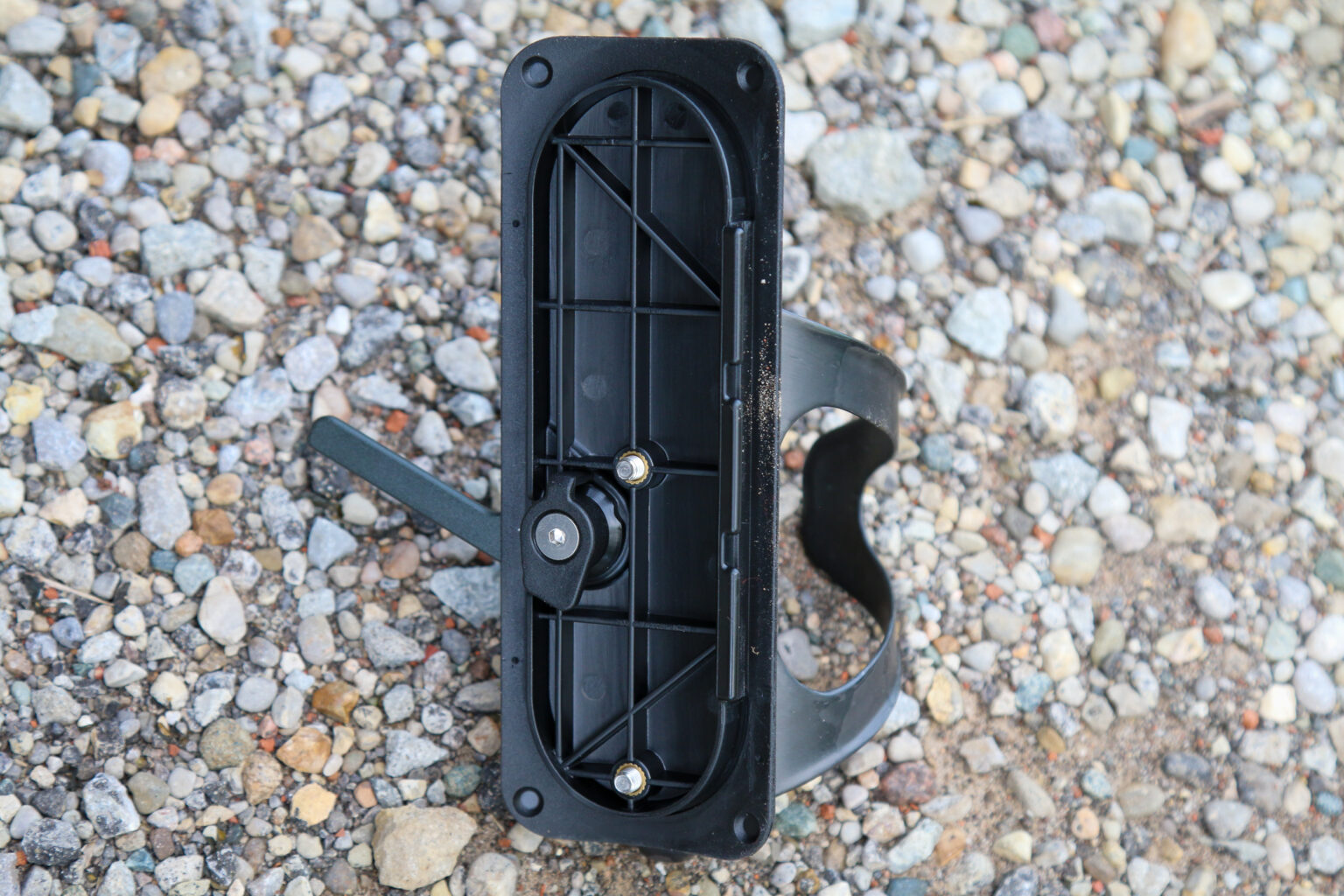
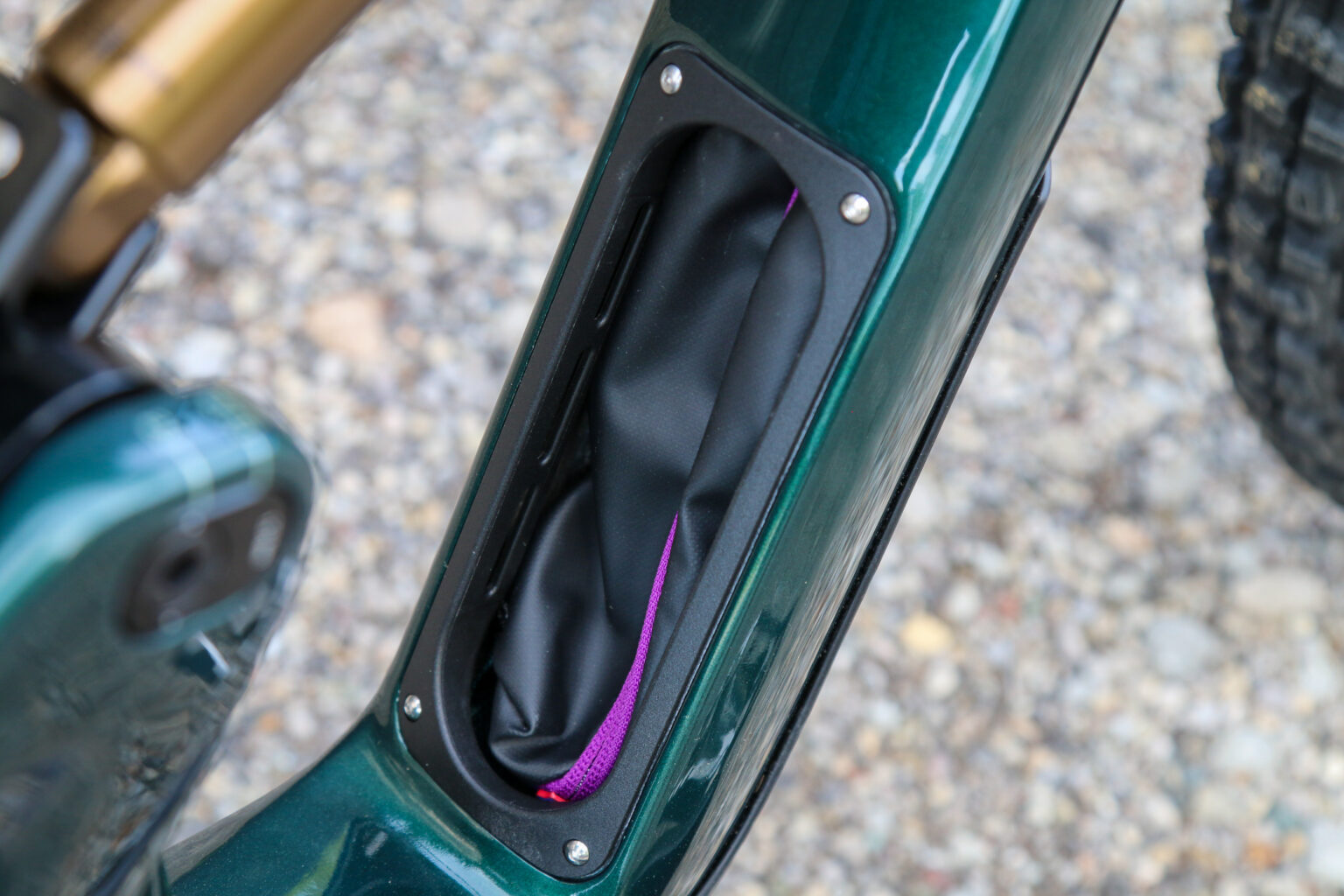
Starting at the door, Ibis felt that the STOW system had to be easy to operate – even with gloves. As a result, the door opens with a single lever that is easy to operate and has a positive detent making it clear when it’s latched. Calling it water-resistant, the door has multiple seals to keep water out and cut down on noise. Note that it is not water-proof, but if you completely submerge your bike, water will come in from other places anyway.
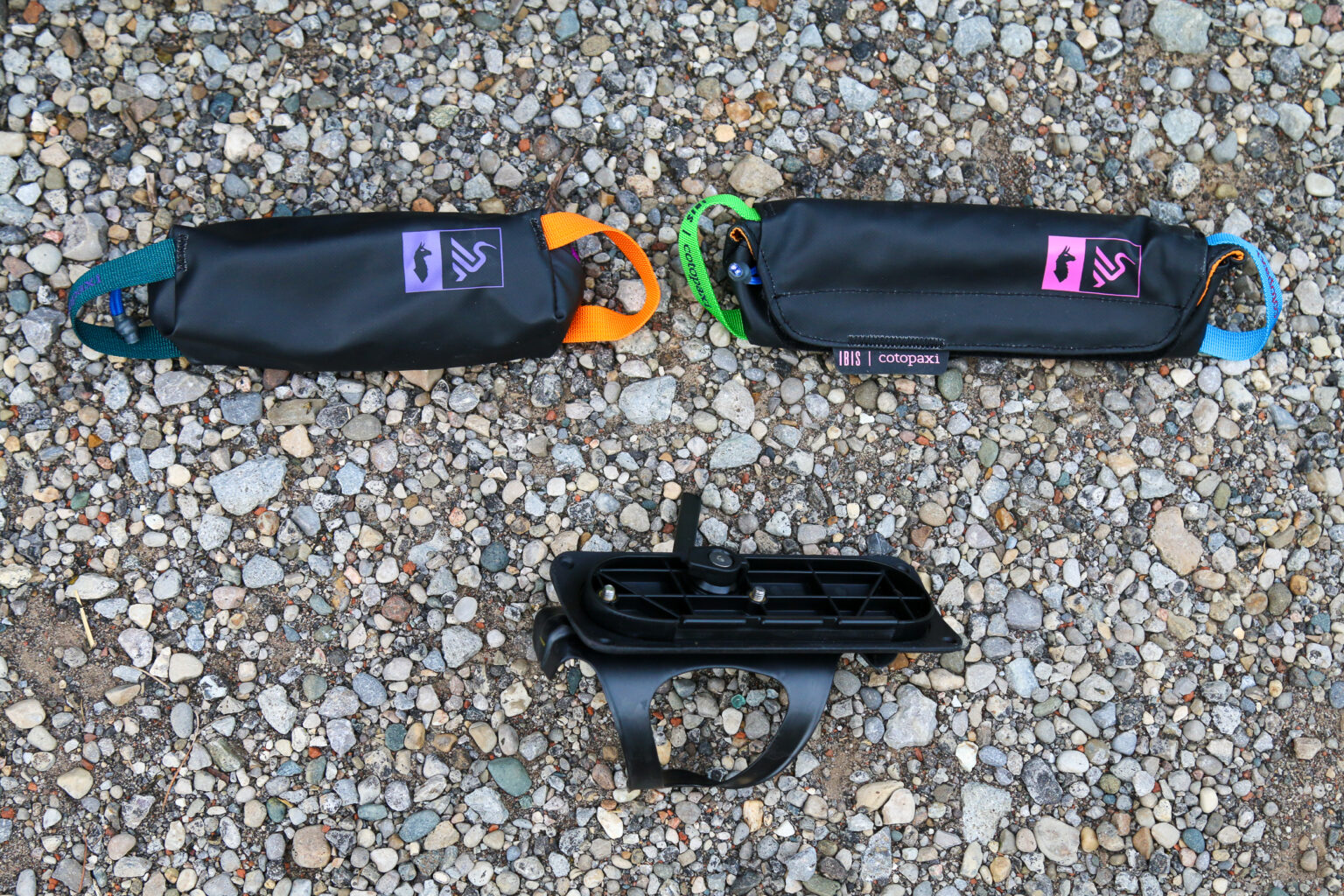
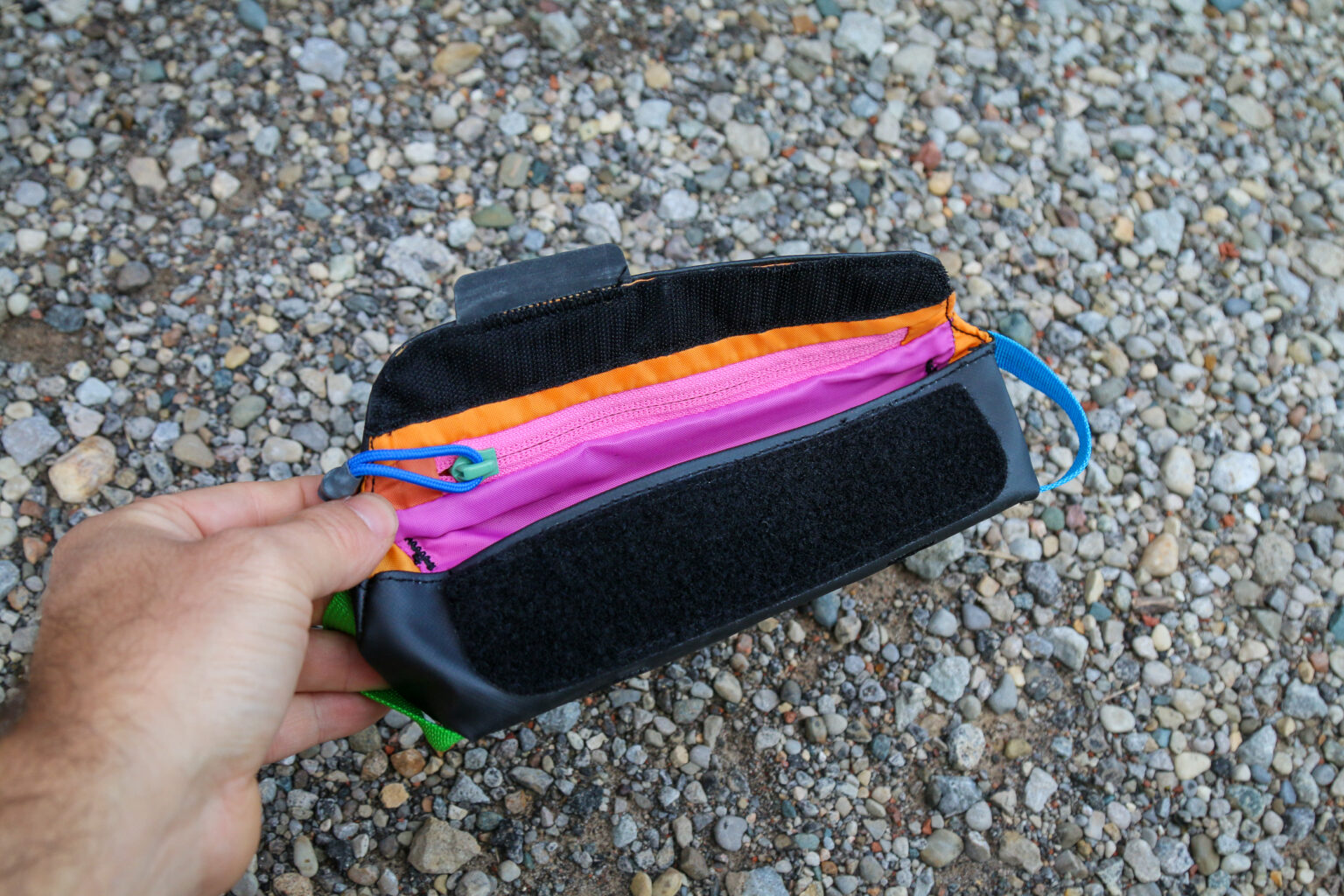
The frame opening is fairly large, which allows easy access for bigger items or the included storage bags. Ibis wanted to partner with a brand on the bags with similar values as a company (including fair labor and environmental practices), so they teamed up with Cotopaxi to create the Ibis STOW Roll and STOW Pouch. These are designed by Ibis, but manufactured by Cotopaxi using fabric remnants for the interior meaning almost every bag is unique.
More importantly, the bags have several details that make for a better storage system. In testing, Ibis found that you could either have bags that fit a lot, or bags that were rattle-free. They opted for the rattle-free approach, though there’s still a good amount of storage in the two bags. The black exterior of the bag is a thicker rubberized material to protect the bag and its contents, while the interior fabric is a brighter color to help you see the contents of the bag. Both bags have pull loops on either end to help you remove them from the downtube, and the bags can be arranged so that you can access the STOW Pouch zipper without removing it from the frame.
Currently in the STOW Roll, I have the new WTC EnCase 40cc pump with tubeless plugger, their EnCase chain tool, and an 8-bit Pack Plier. Inside the Roll you’ll find elastic straps to hold various tools in place, as well as a zippered pouch, all in the name of keeping things quiet. A velcro closure then allows you to wrap things tightly, again to help prevent movement and noise.
In the STOW Pouch, I’m carrying a WTB NanoAir TPU 29er tube, which leaves me with enough room to add my car keys when I have to drive to the trailhead. Being able to access the contents of the Pouch without removing it from the bag makes using it for your keys much less of a hassle.
On a recent ride, I needed to tighten a lock-on grip, so I timed myself on how long it would take to get everything out, fixed, and back riding. Even without taking off my gloves and dropping a tool bit on the ground, I had everything put back in under two minutes. As promised, the system is very easy to use – and completely silent.
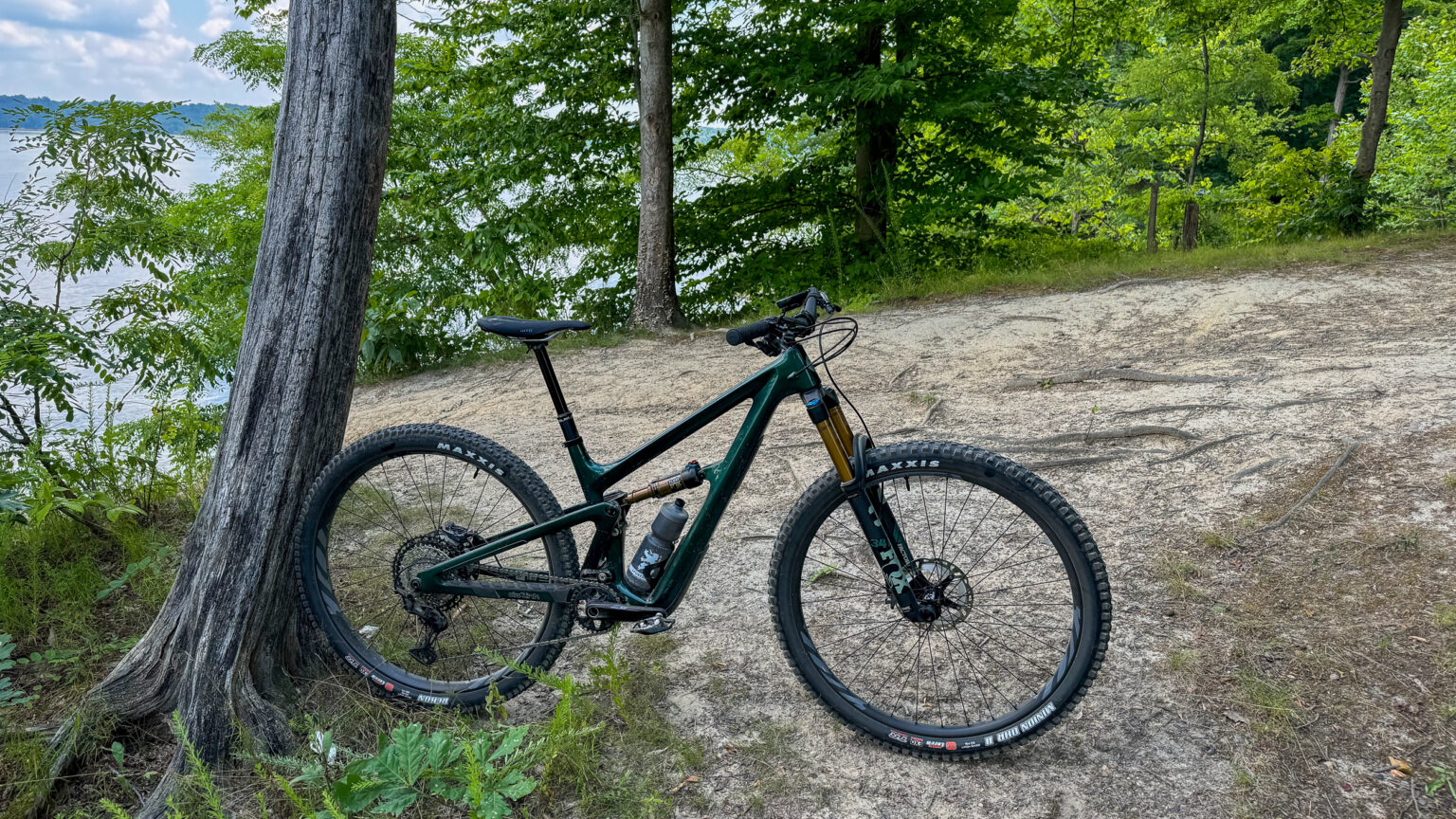
On top of that STOW System you’ll find a standard water bottle cage mount with enough room to fit a full size 26oz Purist bottle on all sizes except the small, which will fit a 22oz bottle.
Size Specific Everything
A lot of brands have touted the benefits of size-specific design, but Ibis takes it to the next level. Not only do the frames have size-specific tubing sizes, seat tube angles and chainstay lengths, but even the bottom bracket heights are different, with bigger sizes having higher BBs to prevent crank strikes by larger riders who typically run longer cranks (and have longer wheelbases which decreases breakover angle). Different bottom bracket heights also mean changes to the center of gravity used for calculating suspension kinematics, so each size also has its own size-specific kinematics as well.
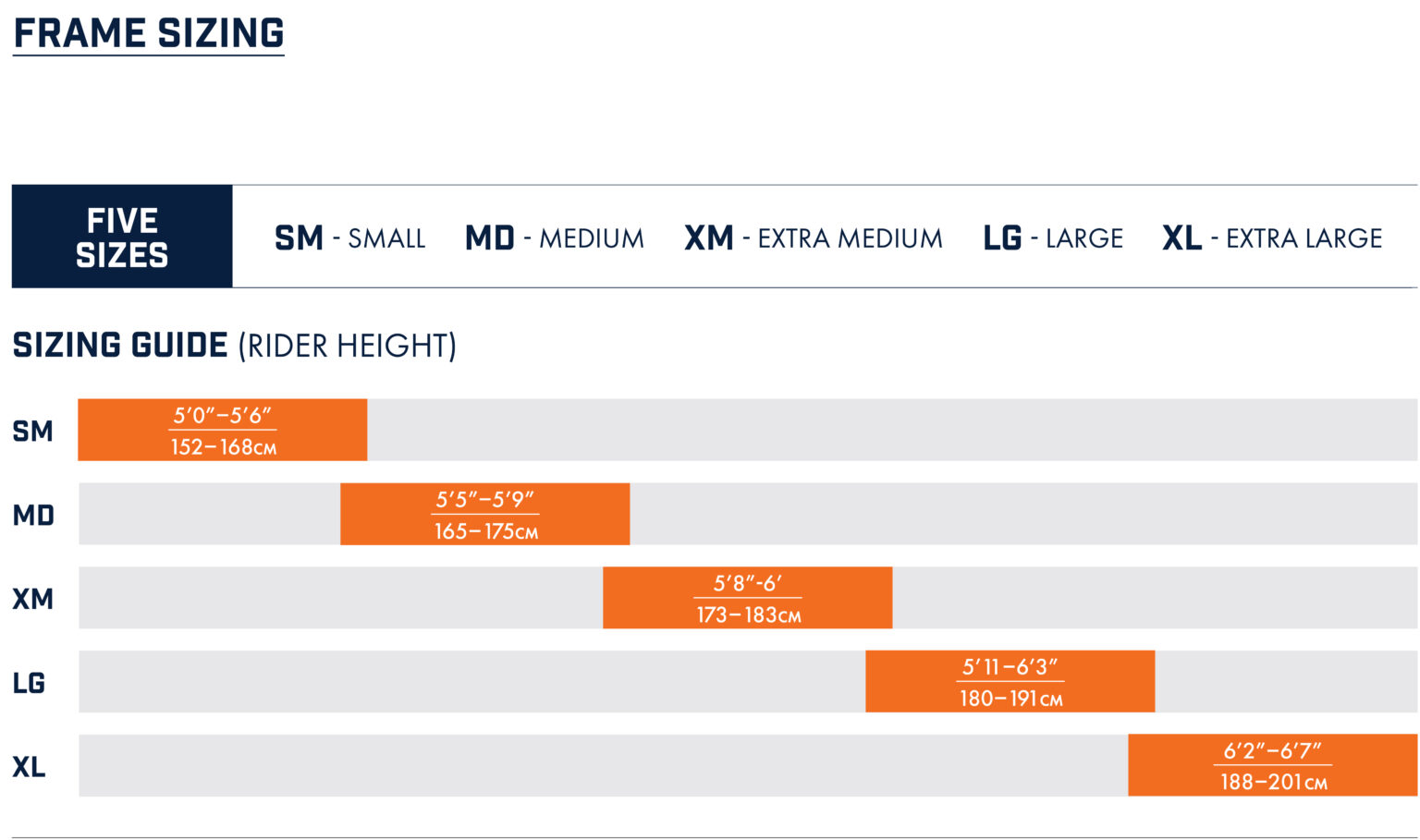
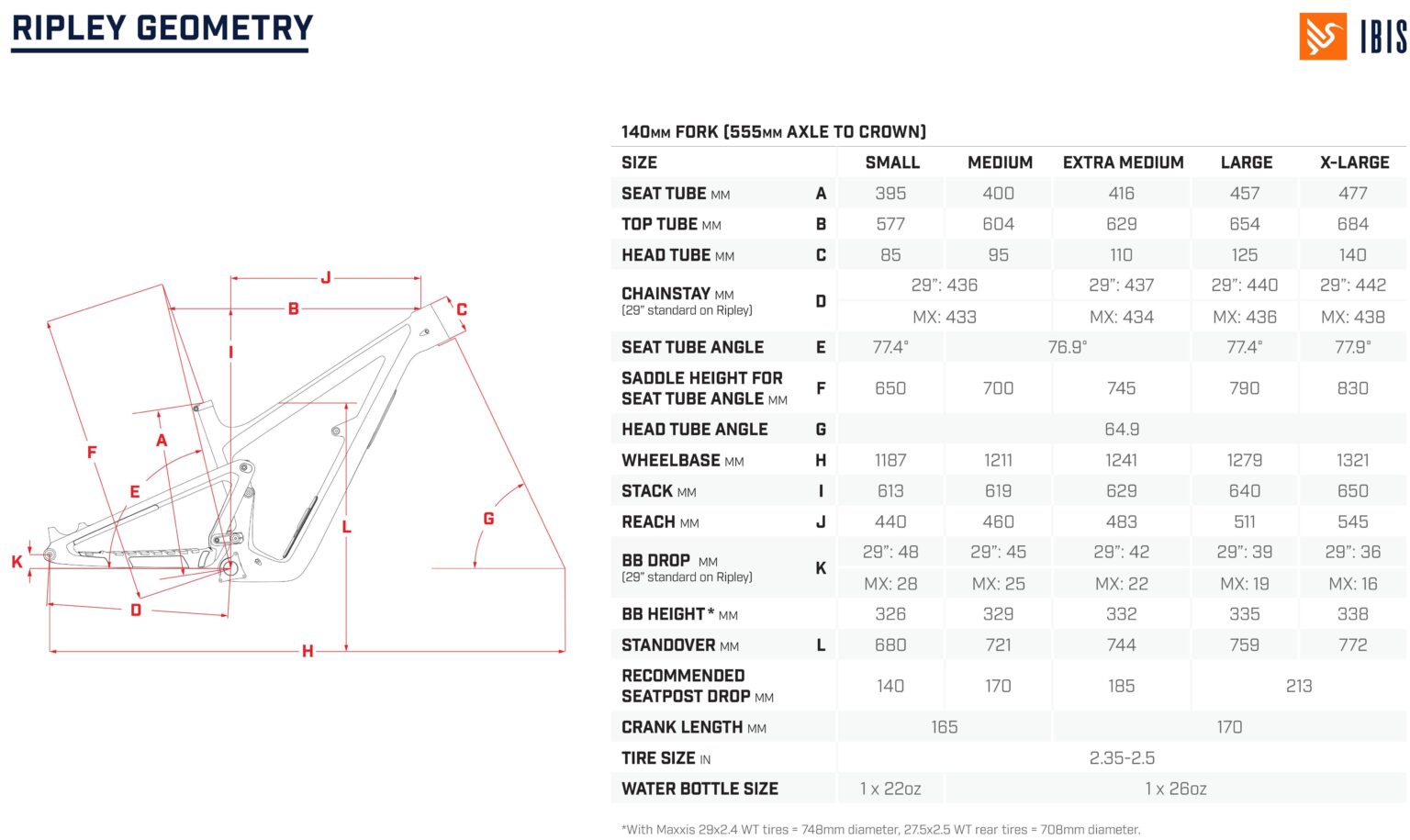
On the topic of frame sizing, Ibis has added a new size called “Extra-Medium.” Sitting squarely between Medium and Large, the new XM size should be a popular size for riders who find themselves in the middle of the sizing bell curve.
In terms of geometry, the Ripley v5 is a good deal slacker up front than v4, with a 64.9º head tube angle (same as the outgoing Ripmo v2). In fact, a lot of the geometry is very similar to the Ripmo v2 with the medium now running a 76.9º seat tube angle, and the reach has bumped up 10mm in the medium size to 460mm. Even though the reach is longer, I found that the medium with a 35mm stem felt too short. After bumping up to a 50mm stem, I’m happy with the fit.
MX Wheel Flip Chip
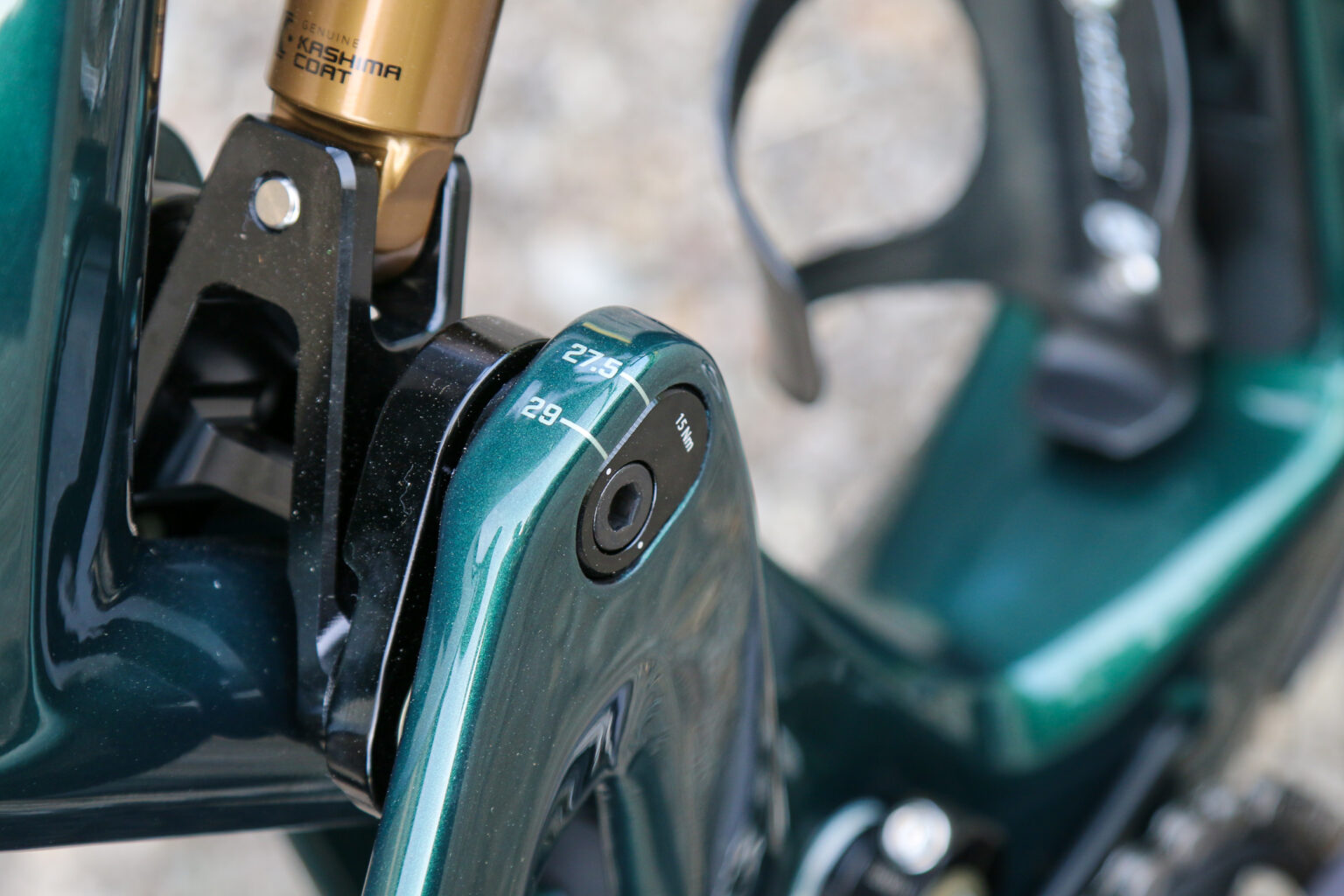
For the Ripley, all sizes will ship with 29″ wheels. However, if you want to run an MX or mixed-wheel setup on your Ripley, it has a flip chip to do so. This chip only changes the rear wheel height – it does not affect geometry or suspension.
Change Your Ripley into a Ripmo & Vice Versa
Want even more versatility? Swap out the stock parts for a 160mm fork, metric 230 x 60 shock, and the right shock clevis & shock eyelet hardware, and your Ripley is now a Ripmo. The same is possible with the Ripmo to turn it into a Ripley. Since the two bikes share the same front and rear triangles and the majority of the suspension hardware, it’s easy-ish to give your Ripley some longer legs when traveling to a destination that calls for it.
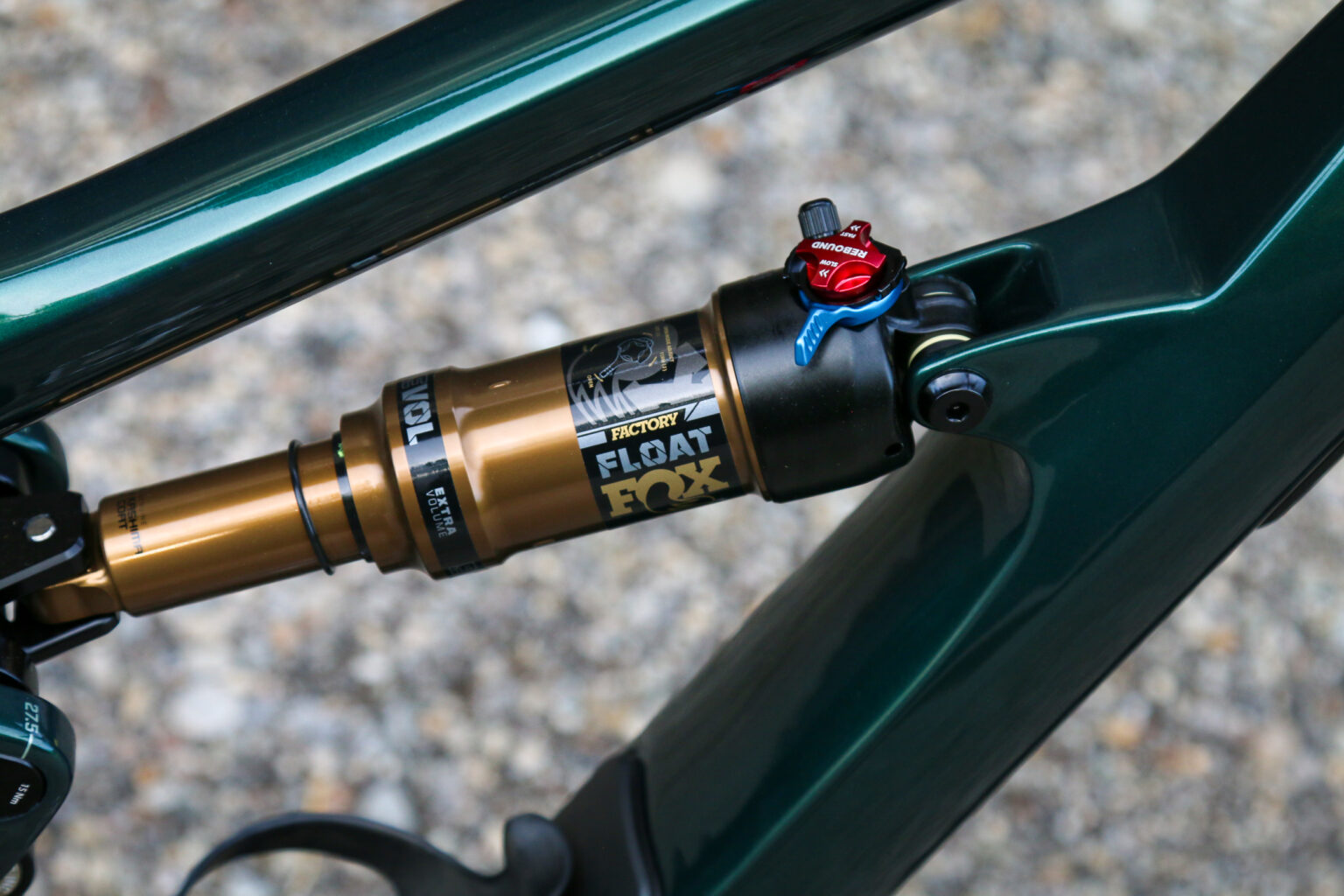
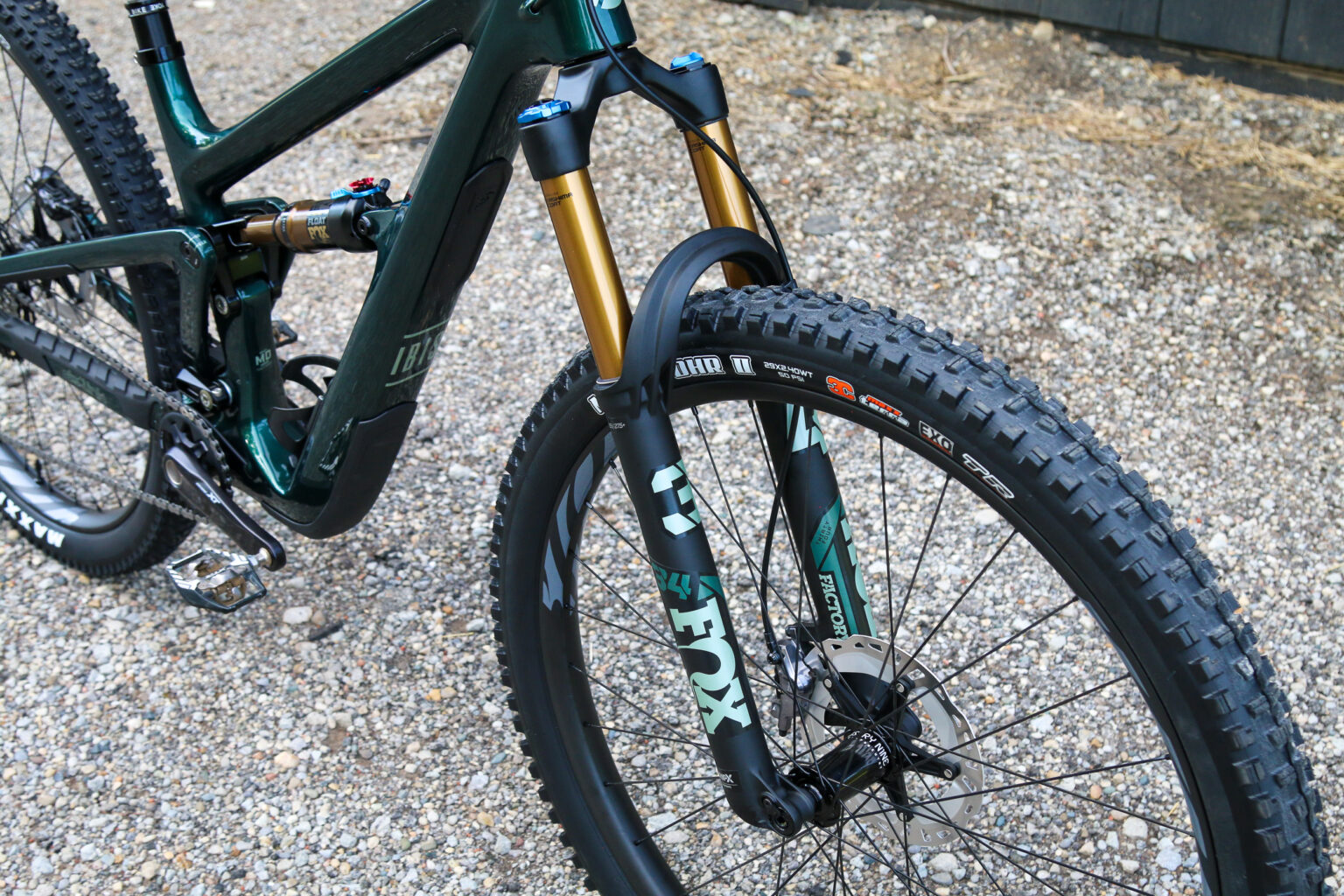
However, note that the Ripley now has slightly longer travel to begin with, now featuring 130mm of dw-link rear travel. That’s paired with a 140mm travel suspension fork which puts the bike further into the ‘Trail’ category. The Ripley still ships with a Fox 34 fork chassis to keep things light, and a Fox Float DPS EVOL rear shock. Thanks to the new mini clevis with bearings at the upper link, the frame is now coil shock compatible as well. Igus bushing are still used for the lower link.
Additional Frame Details
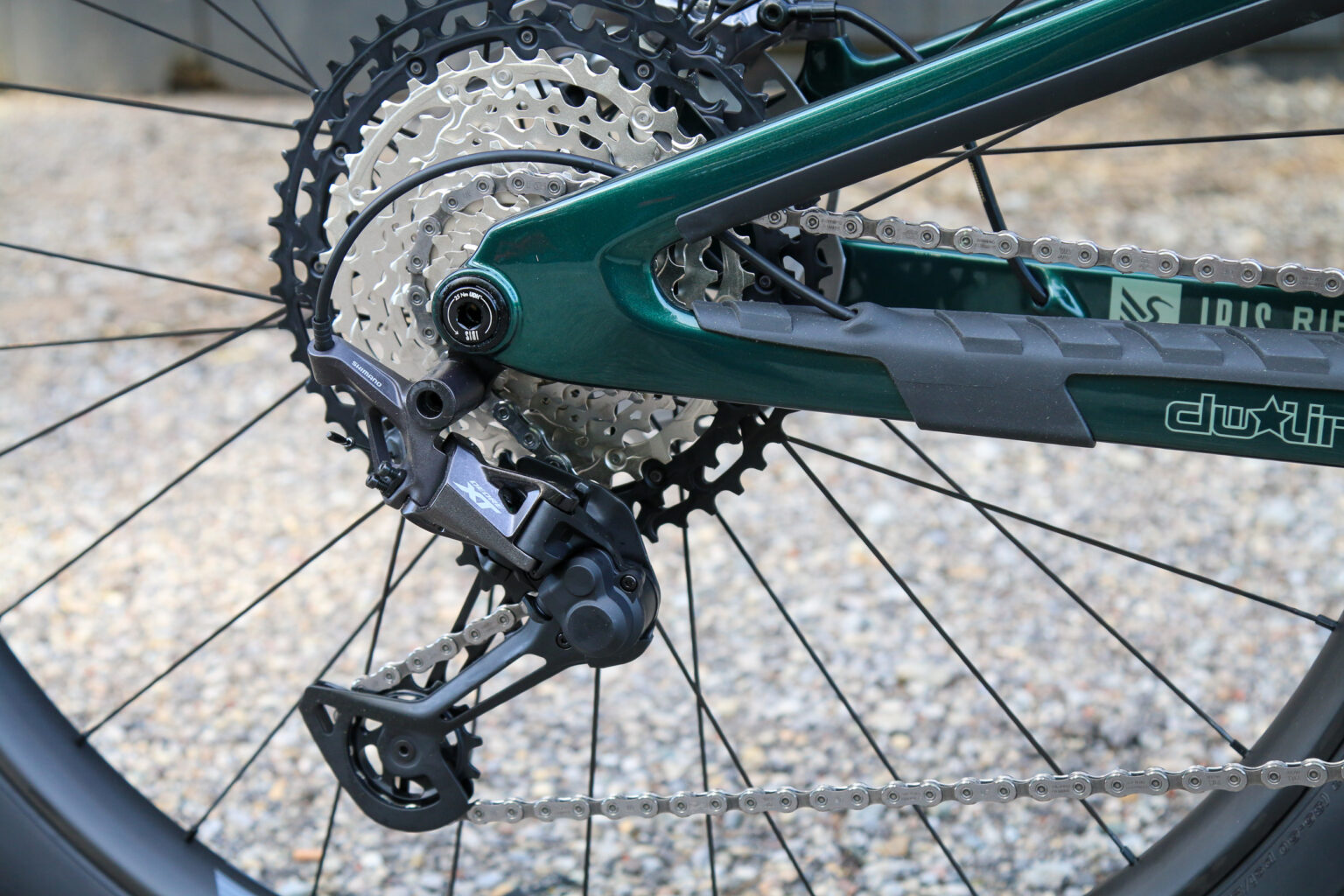
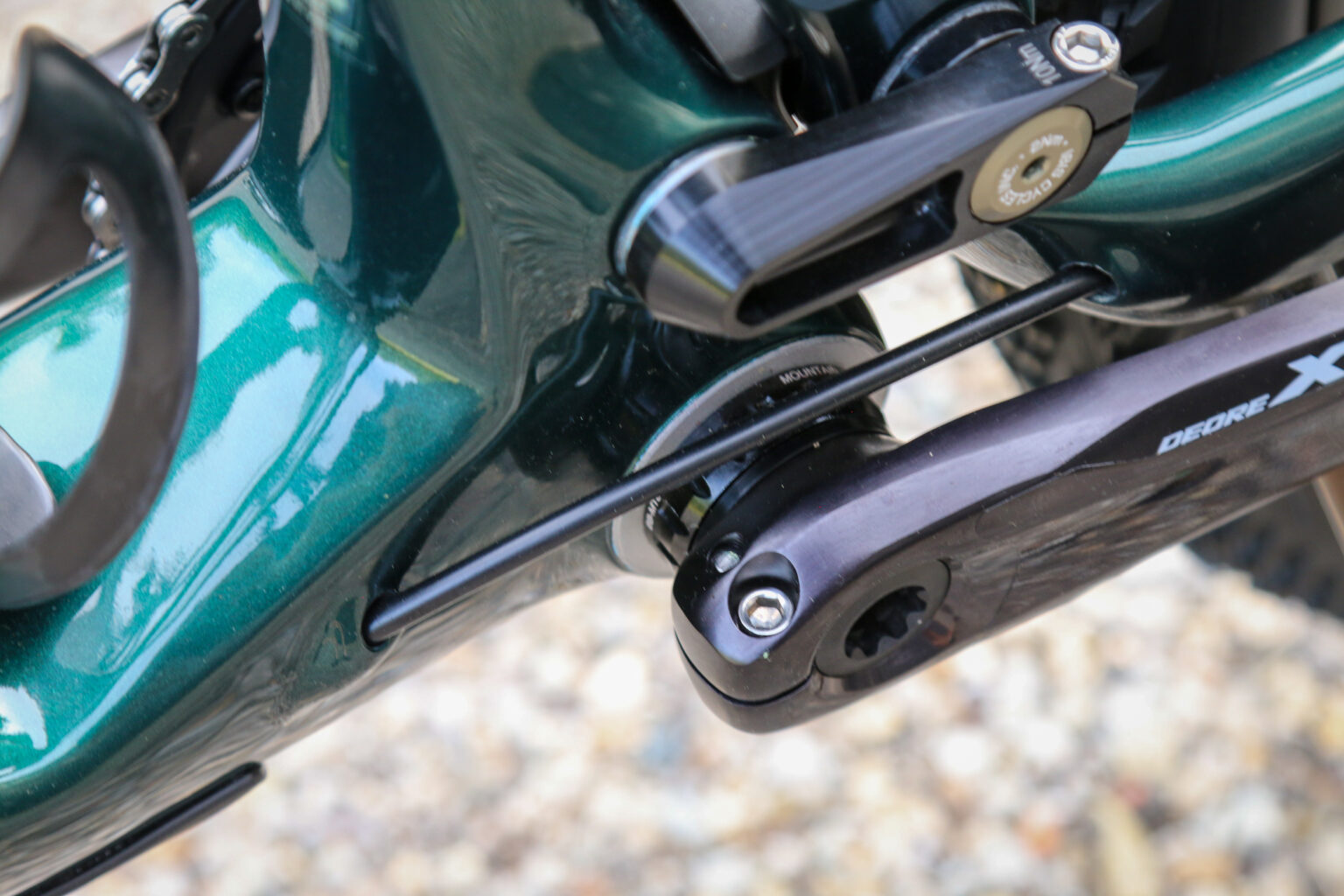
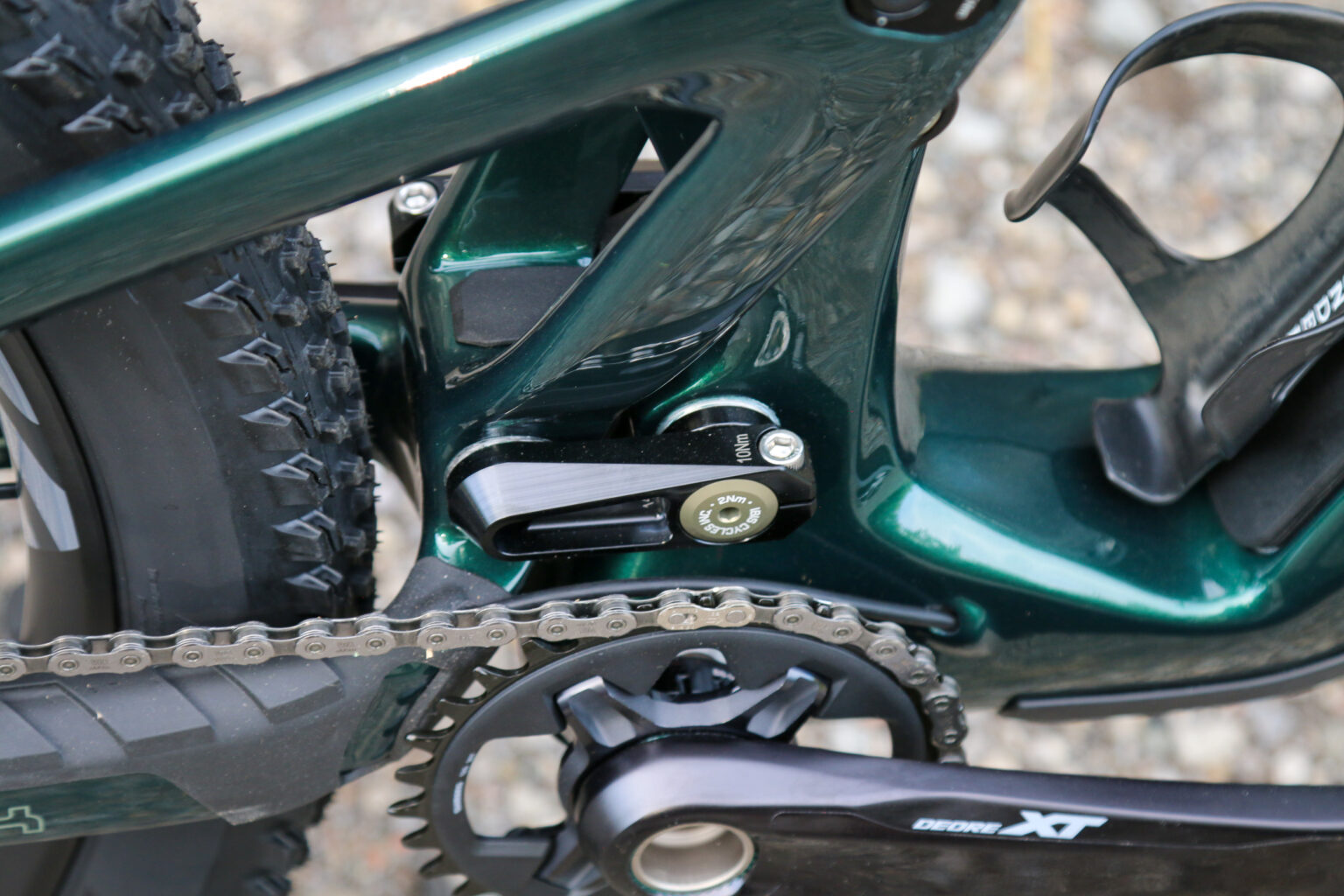
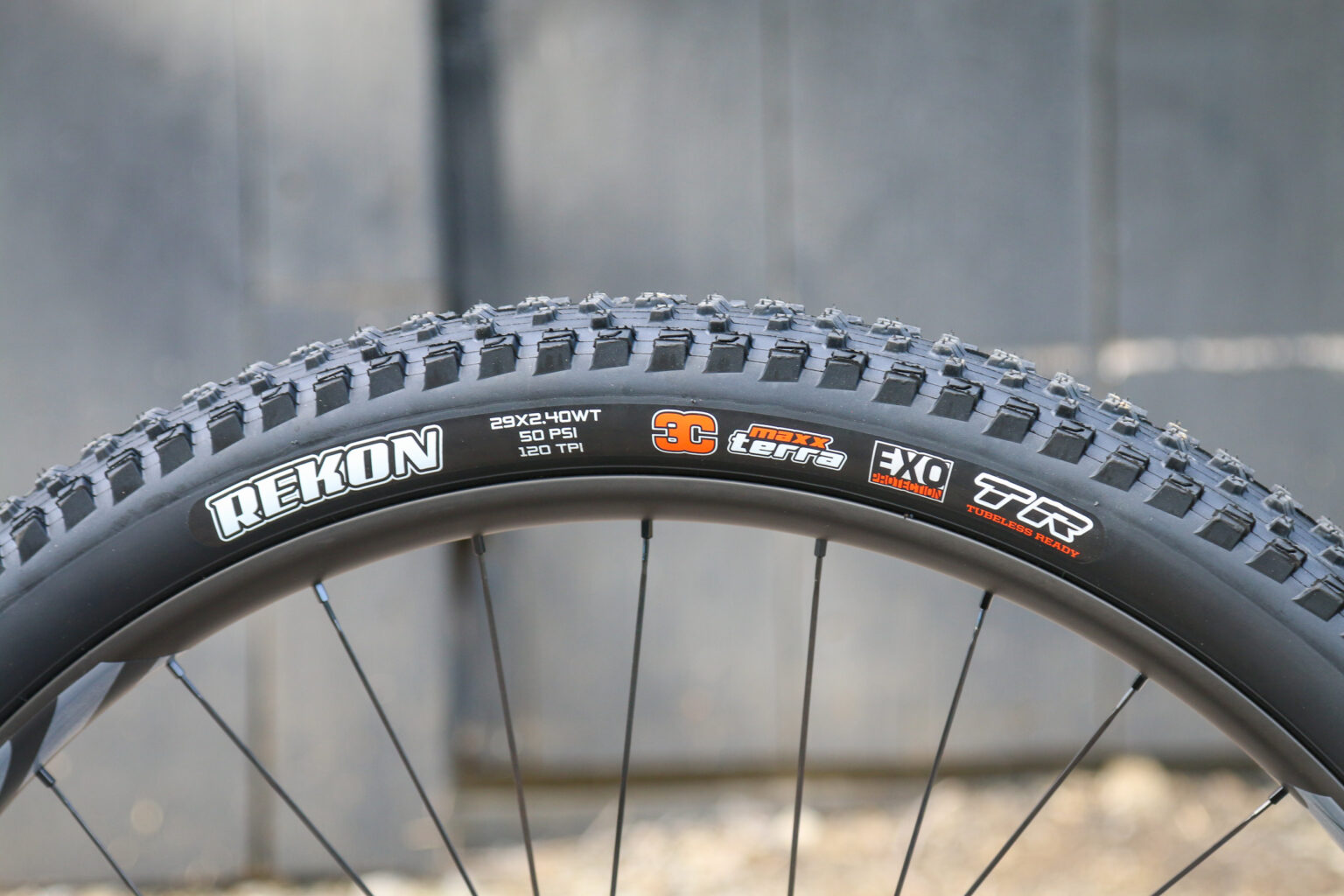
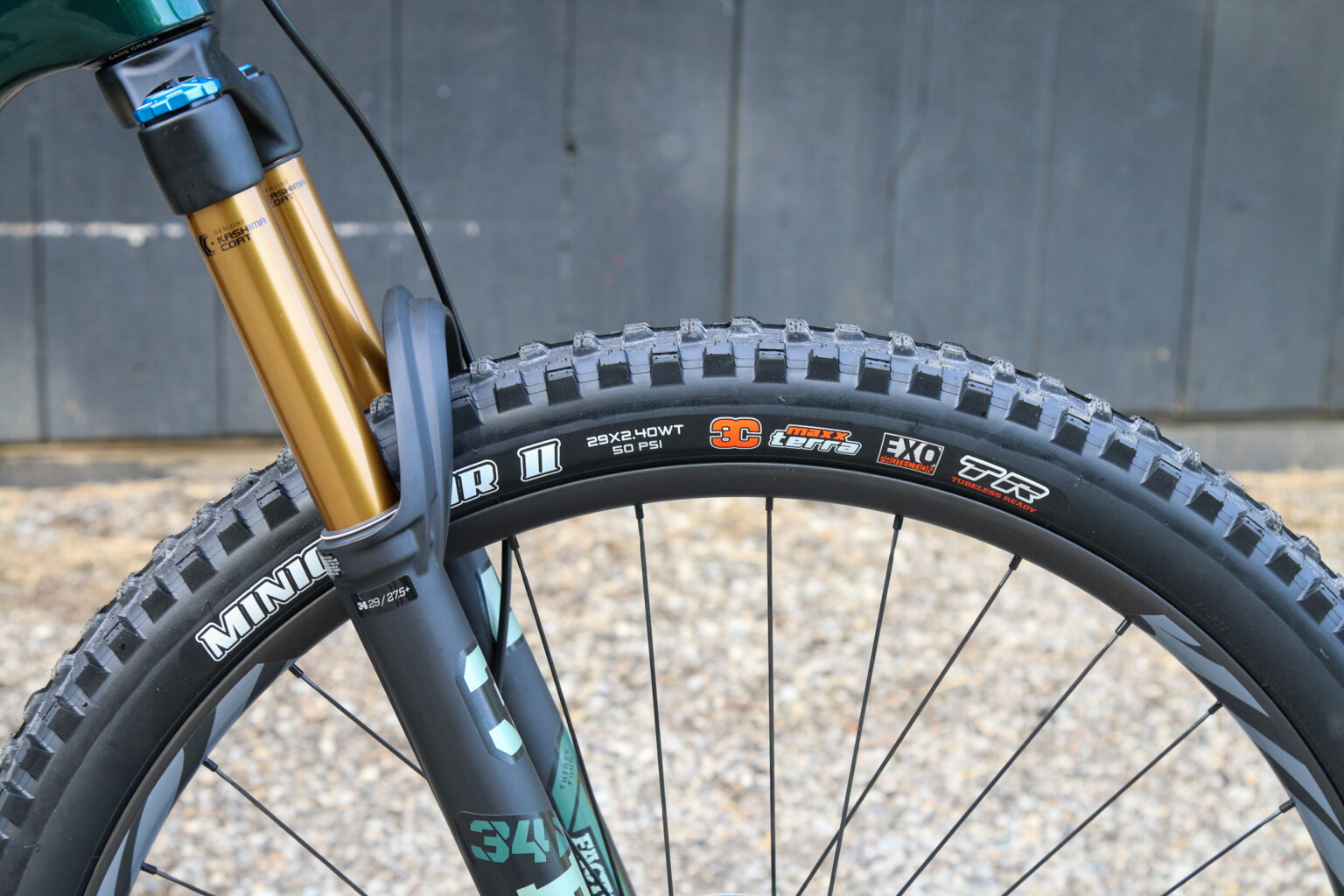
Tire clearance is capped at 2.5″ in both 29 and 27.5″ wheel sizes (stock bikes come with 29 x 2.4″ WT), which is accomplished with Boost 148mm spacing and a standard 73mm threaded bottom bracket (with an ISCG05 adapter available). The frames are built around a 55mm chainline and feature a UDH rear hanger to make them Transmission-compatible.
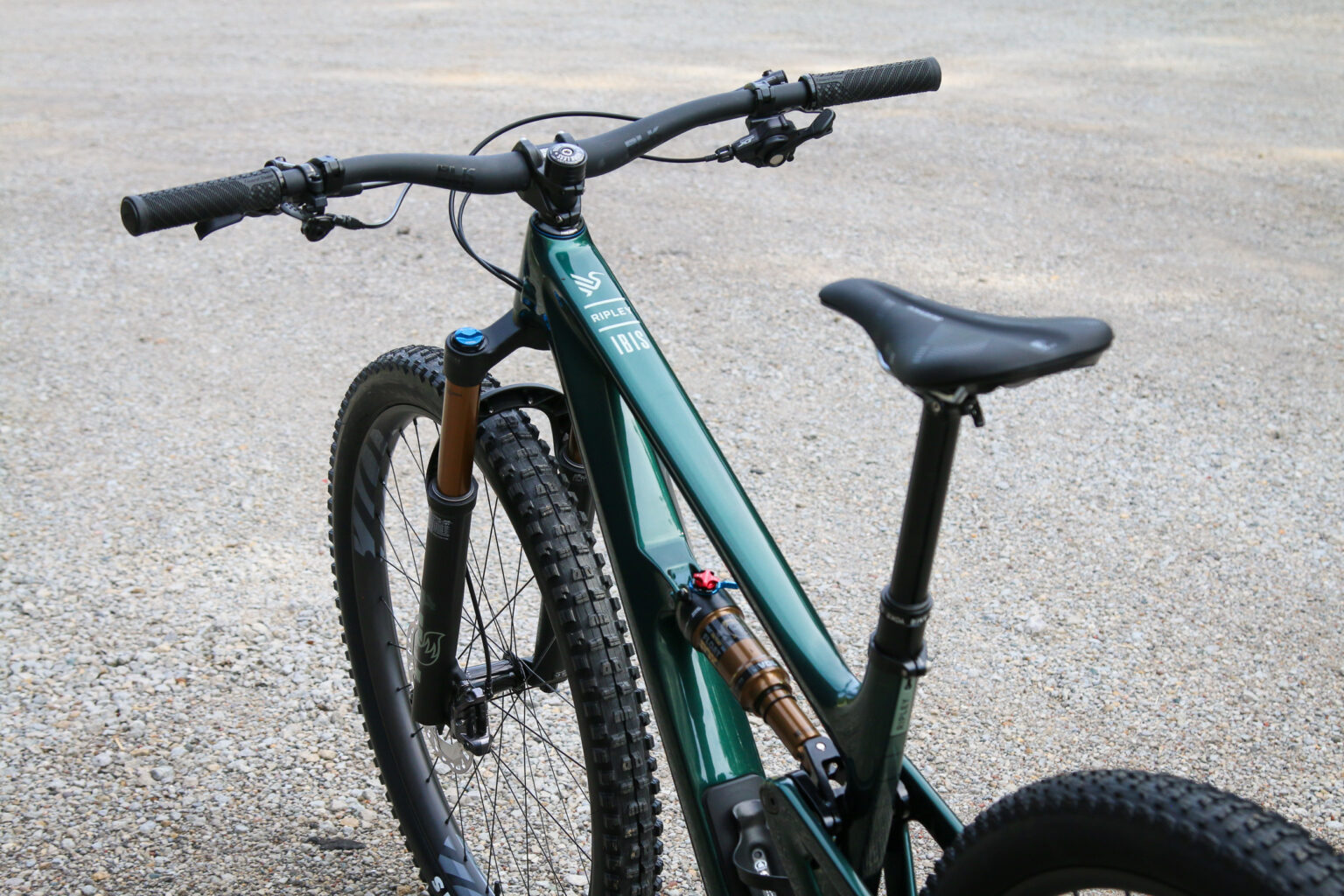
A big change for the new frames is the move to a 34.9mm seat post which should allow for more durable droppers. There’s also a lot of room for those droppers, with stock bikes shipping with 125, 160, 185, and 213mm posts for S, M, XM, and L+XL respectively.
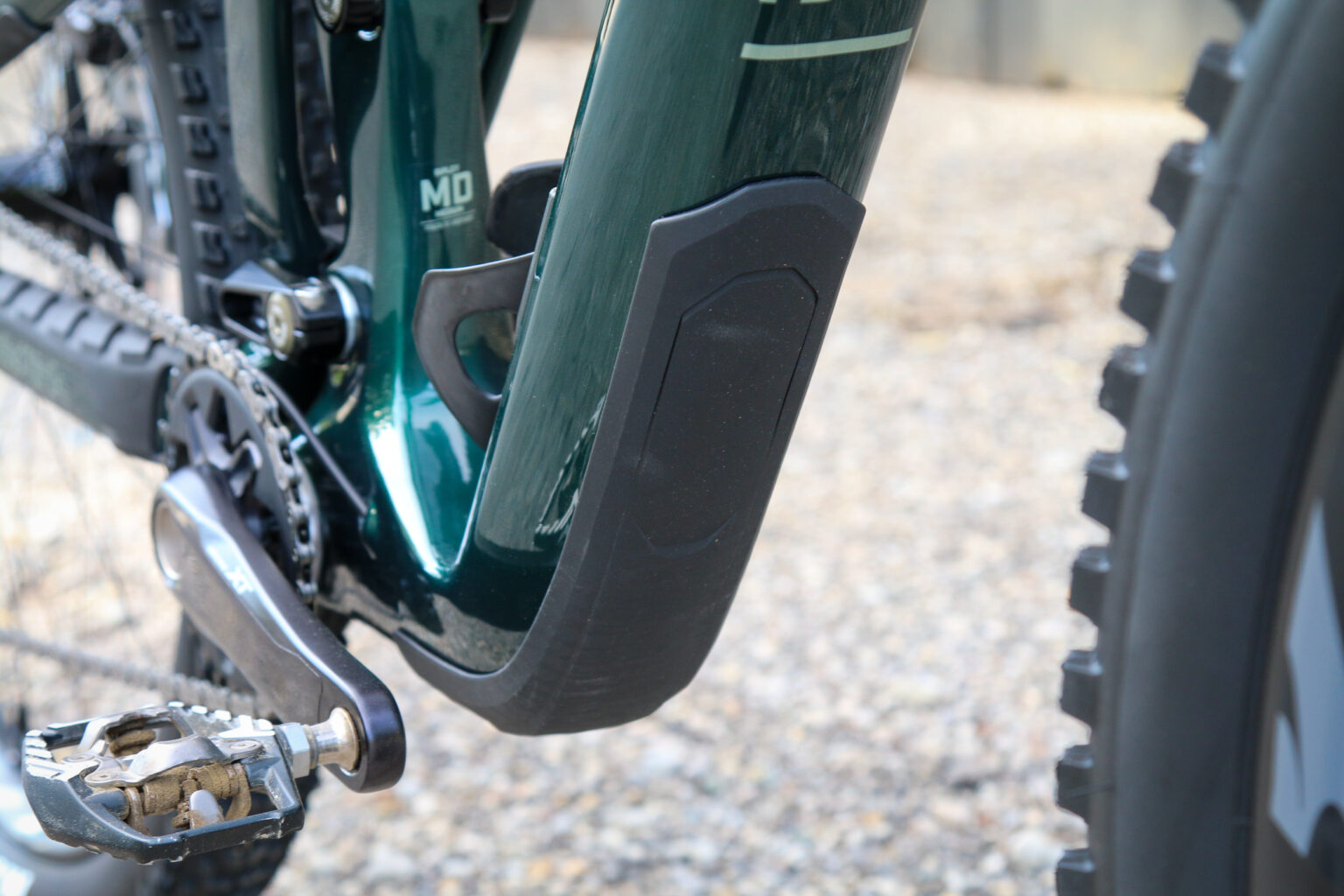
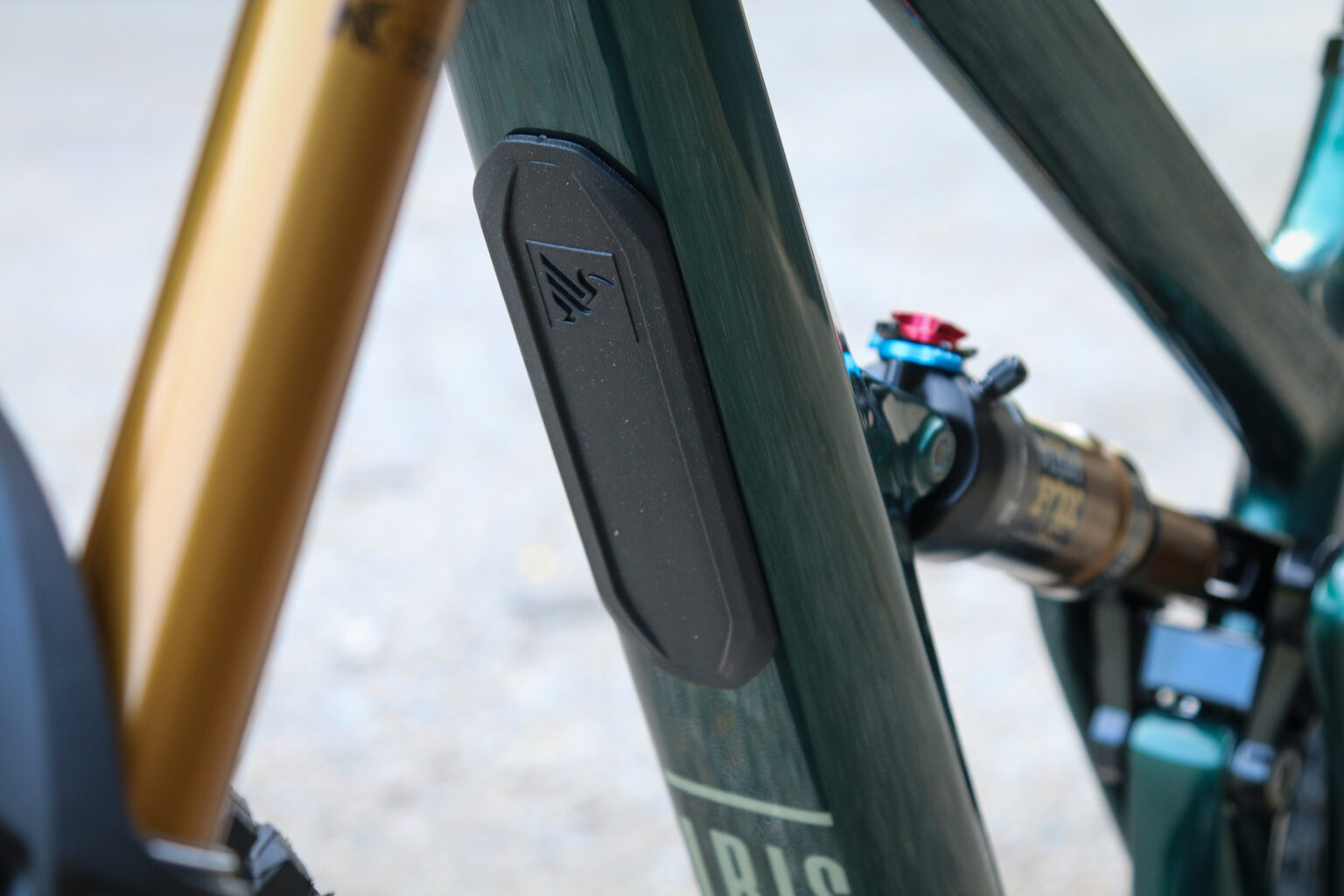
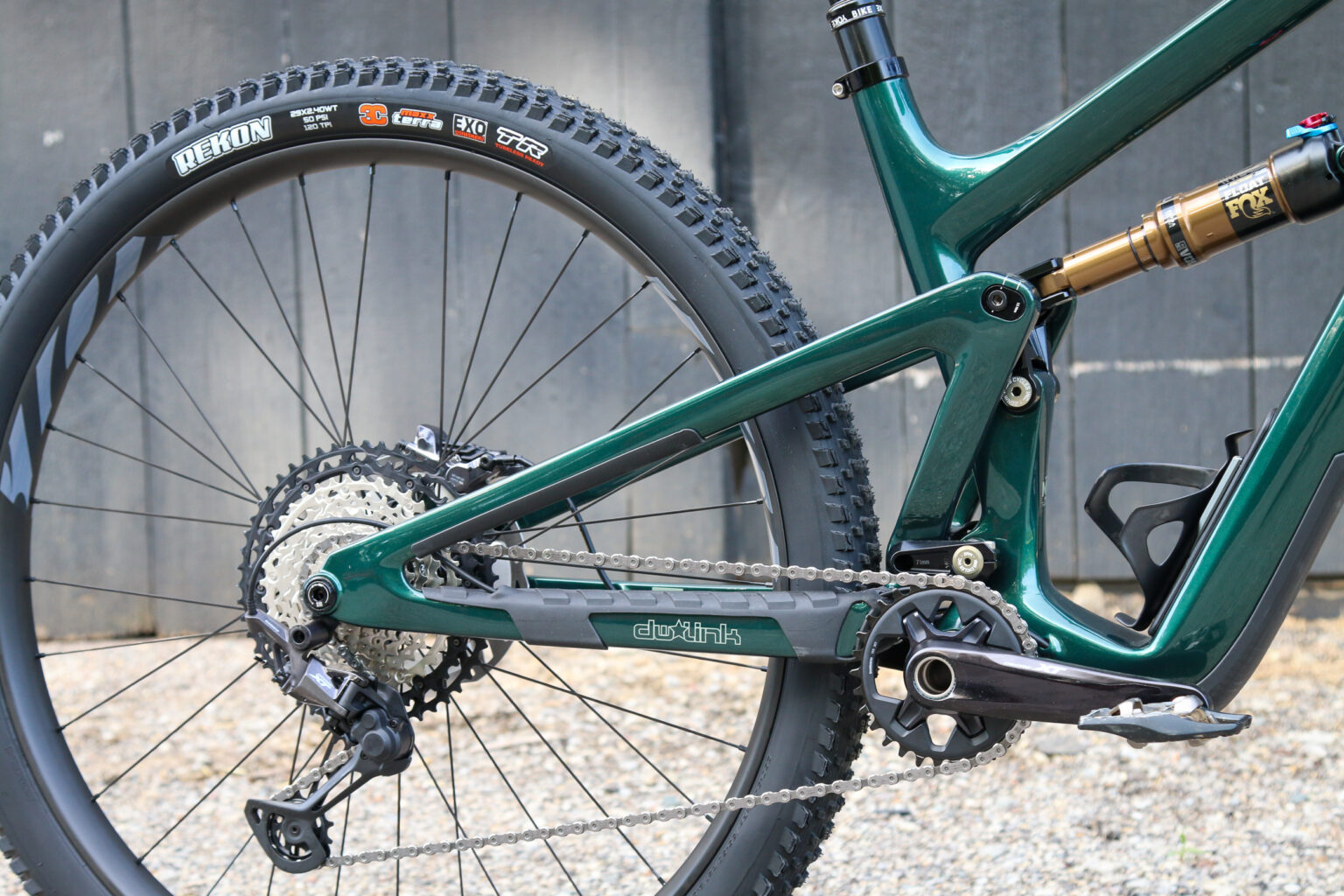
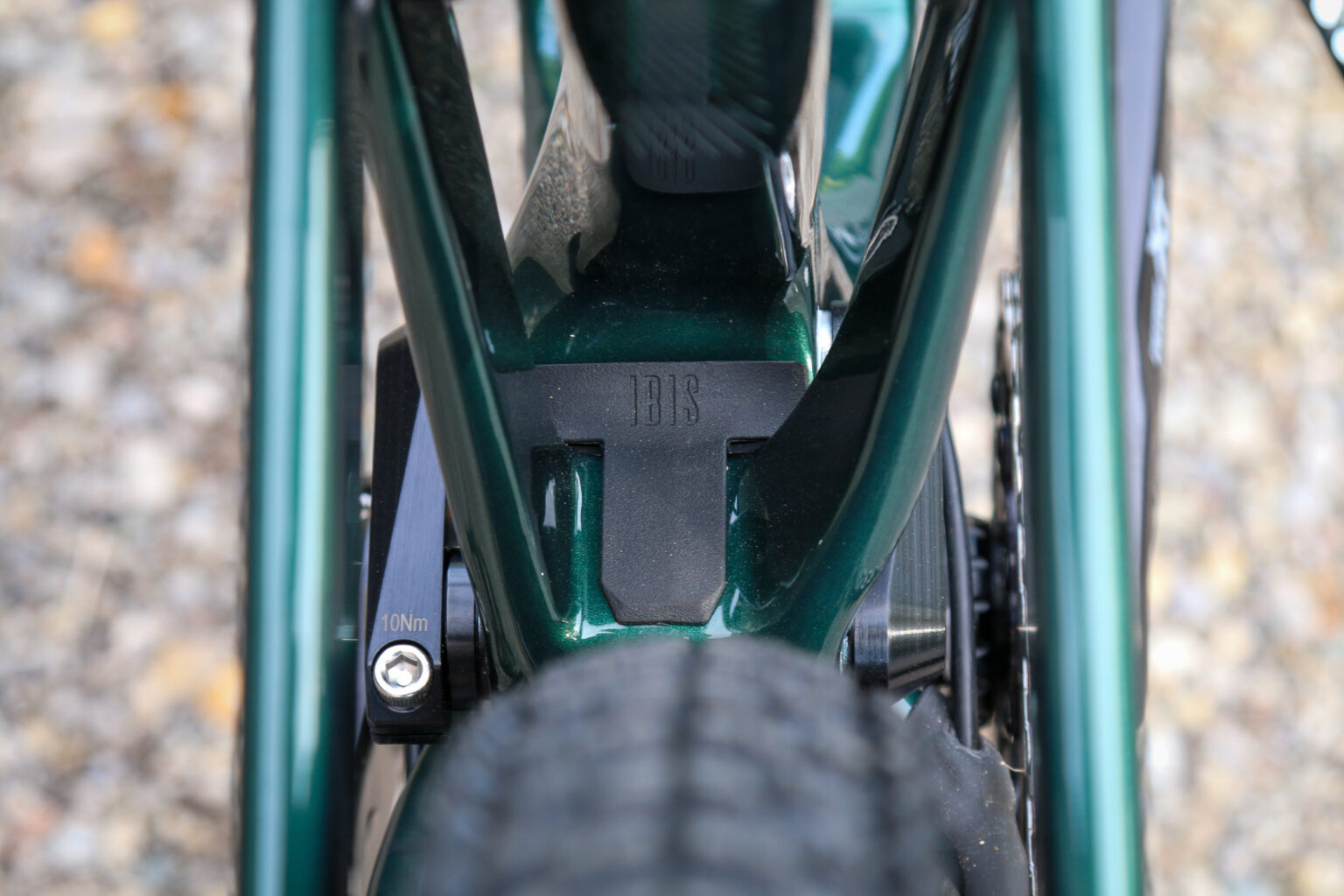
Additionally, the frame gains burly molded rubber swing arm protectors, a downtube/BB guard, and an upper shuttle guard. There’s also a small little flap to keep crud out of the lower suspension link. A nod to the increased potential of the new bike, there is a 220mm maximum rotor size, with a 180mm rear post mount brake standard.
Actual Weight
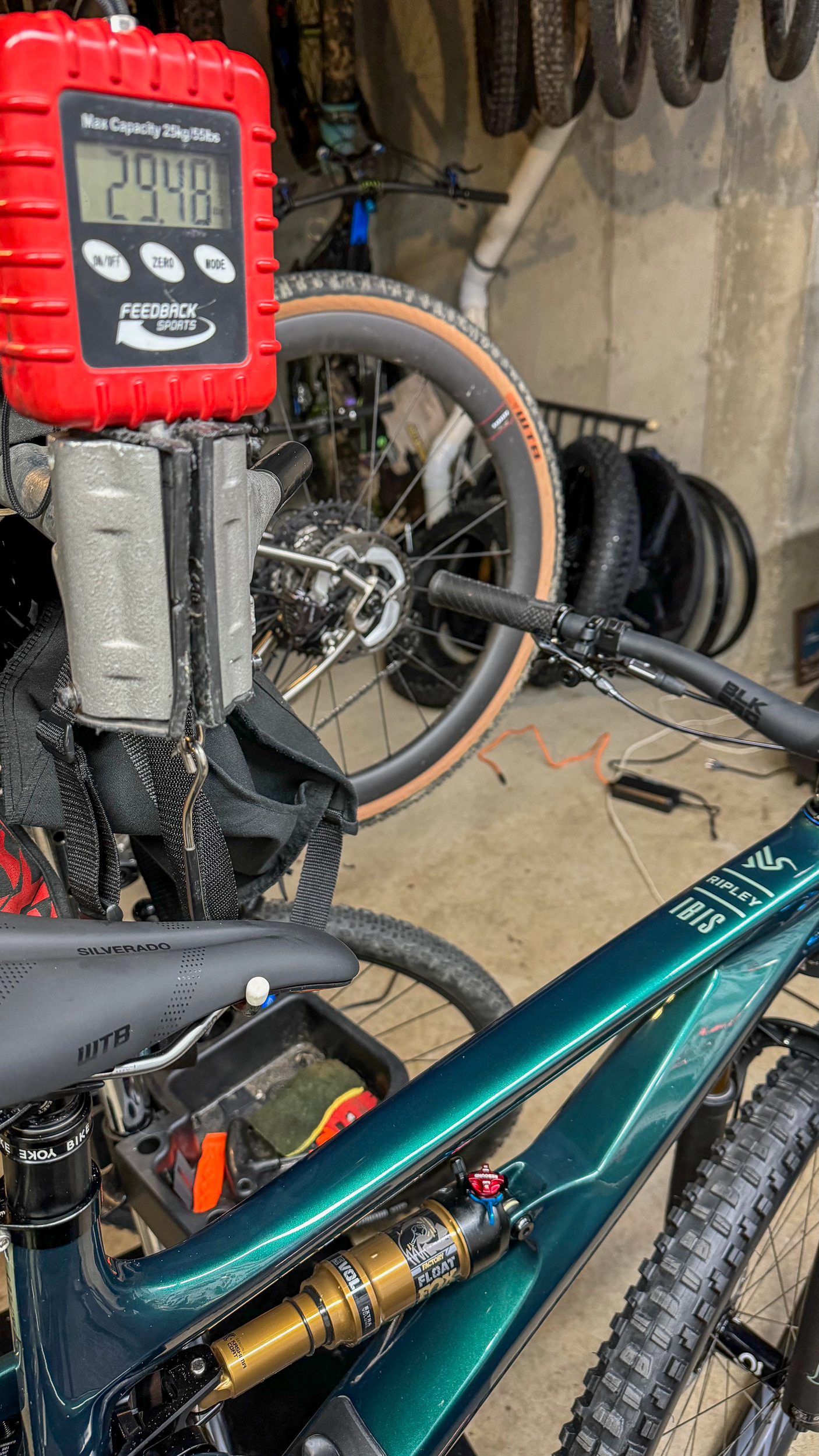
Frame weights are claimed to be around 7.3lbs for the Ripley, with complete builds coming in around 29lbs. Our medium sample with an XT build kit and the Ibis i9 Carbon wheels came in right at 29.48lbs with sealant in the tires, a carbon bottle cage, and no pedals. That’s definitely a bit heavier than the outgoing Ripley v4, but light enough for a more capable bike.
Colors, Builds & Pricing
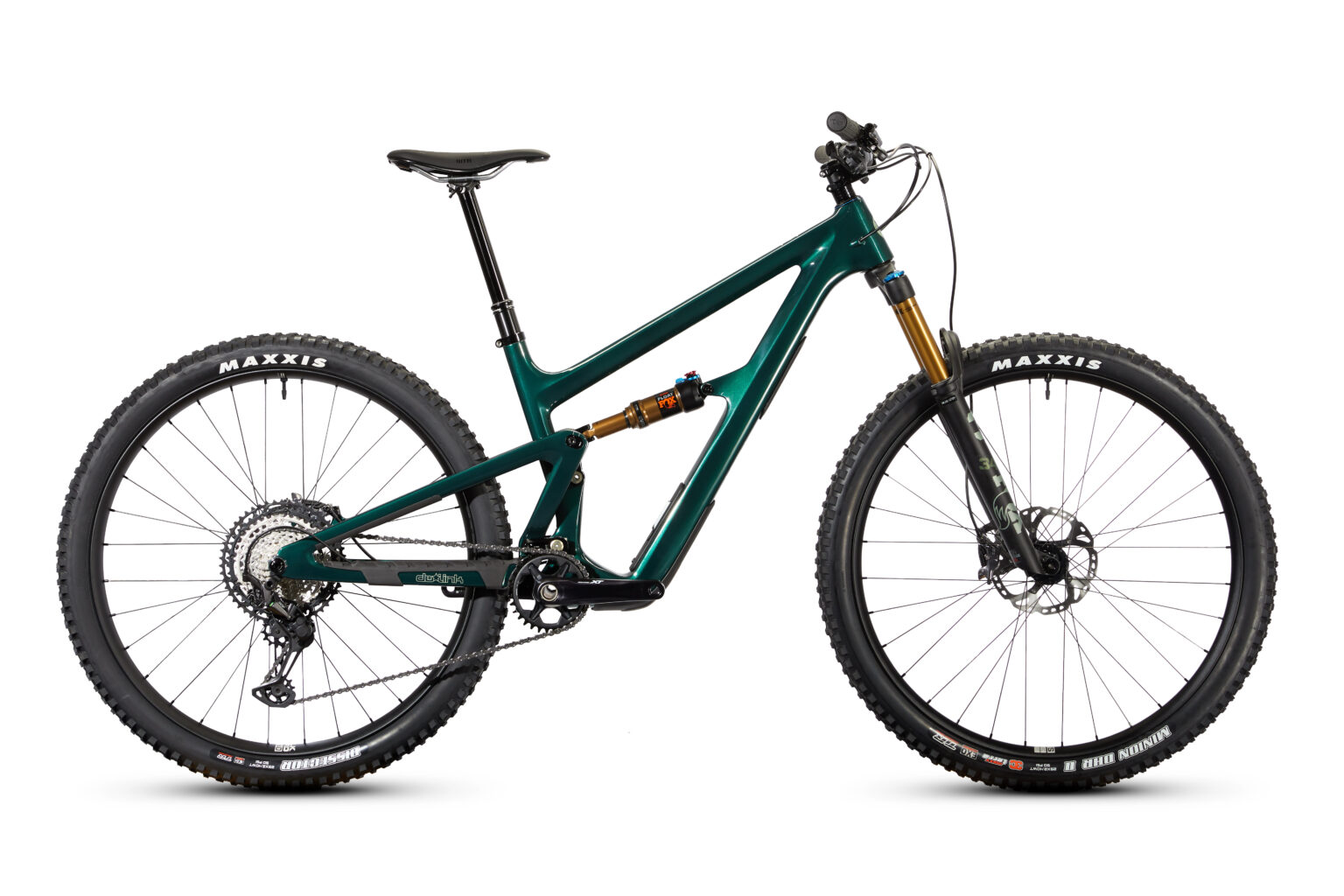
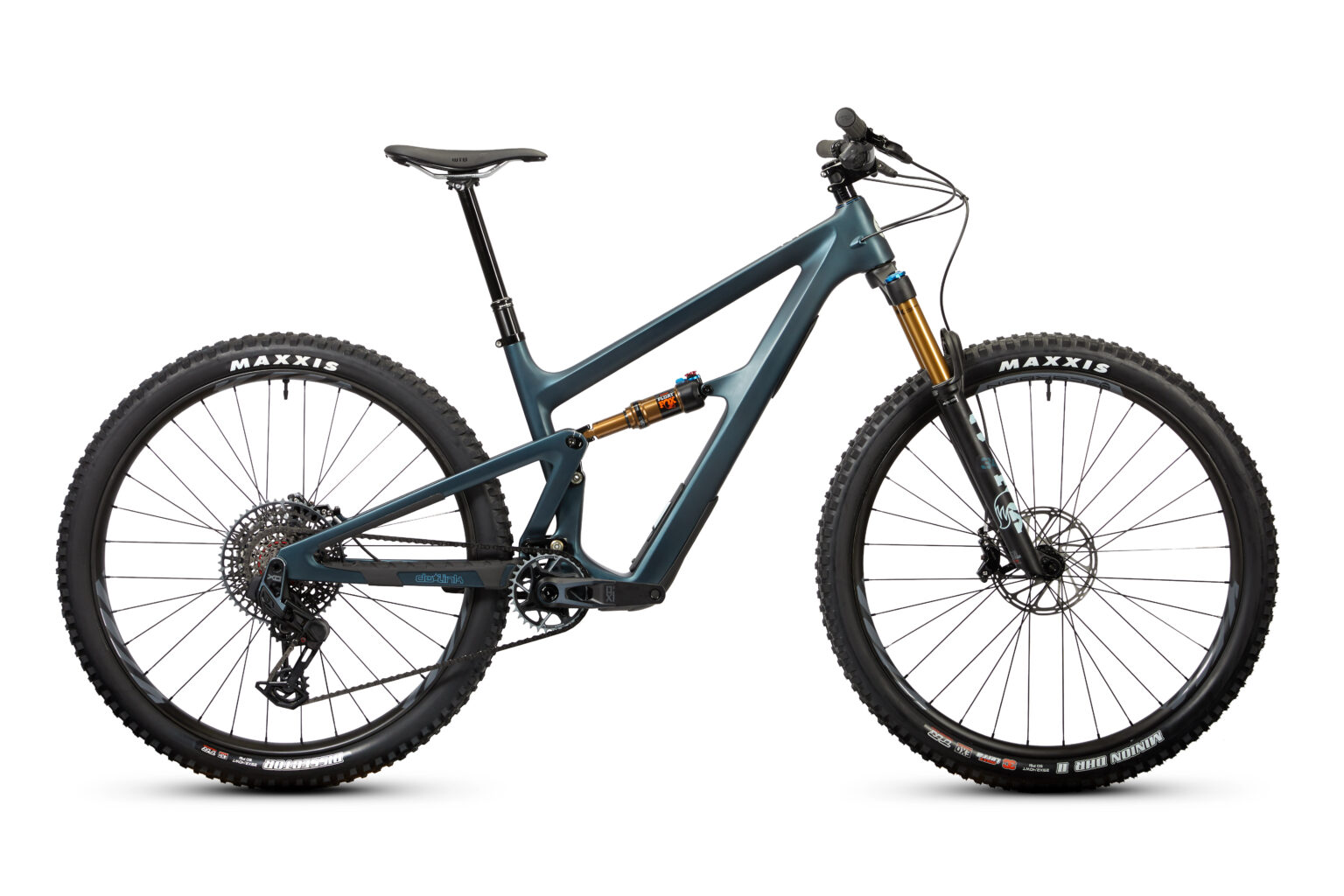
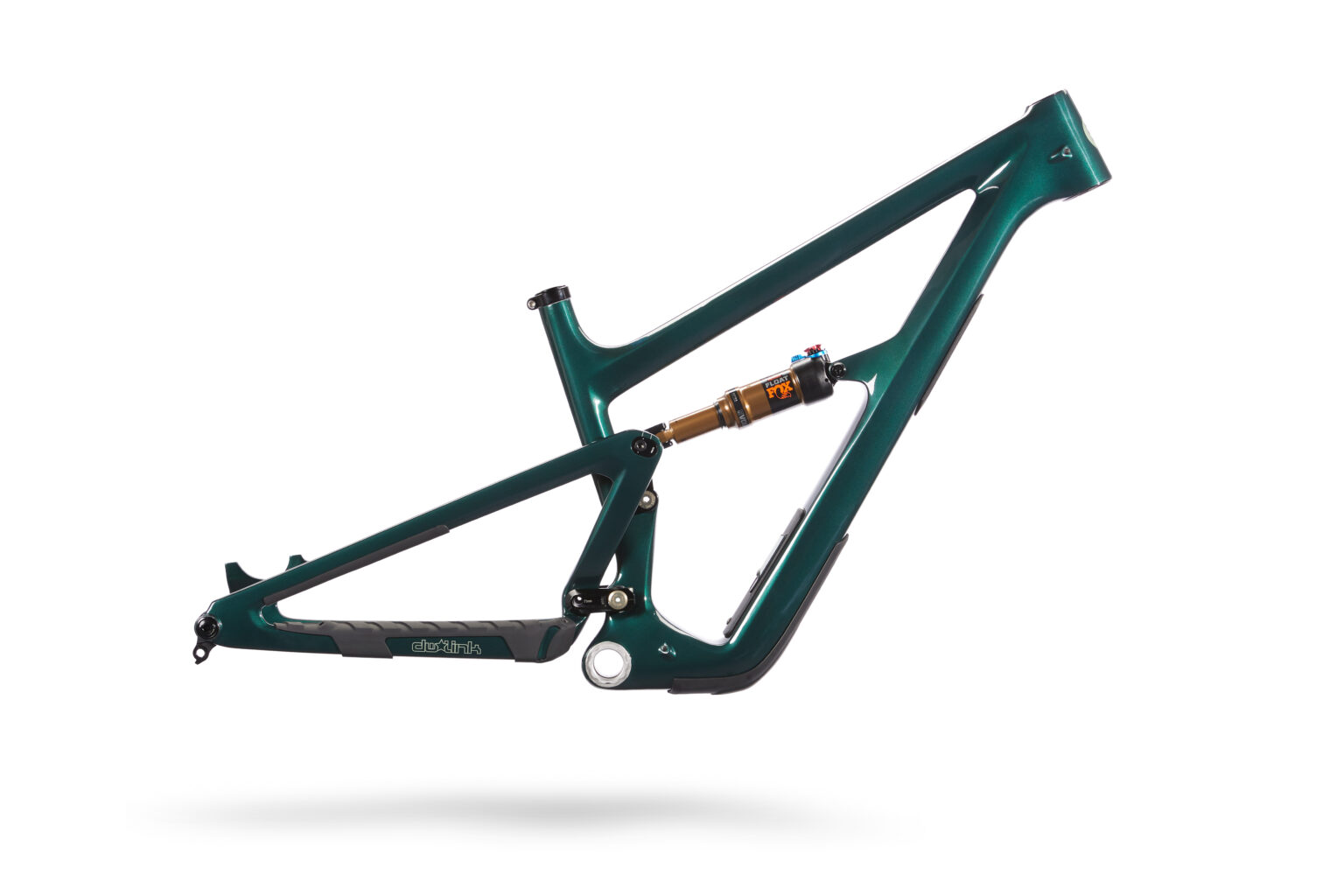
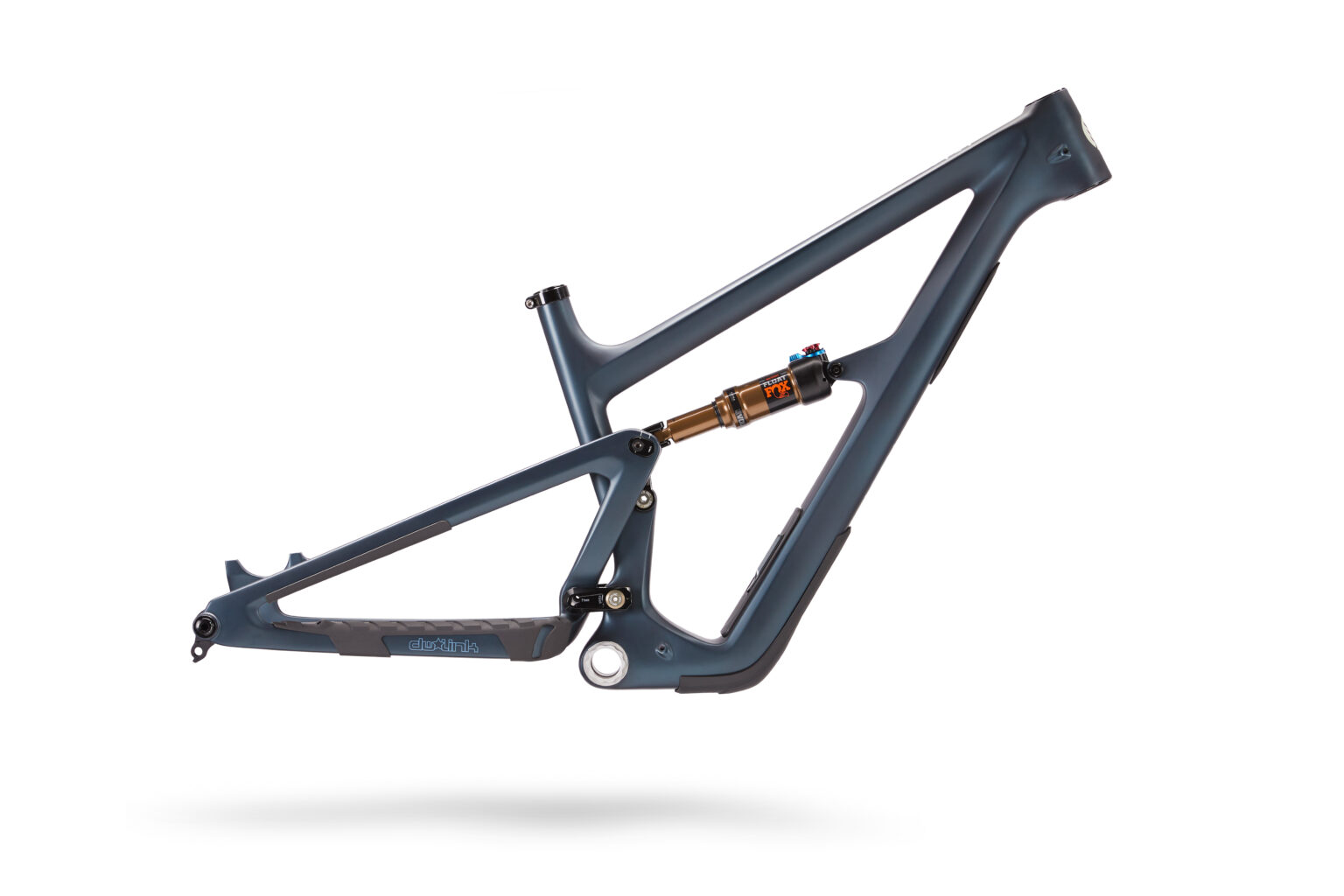
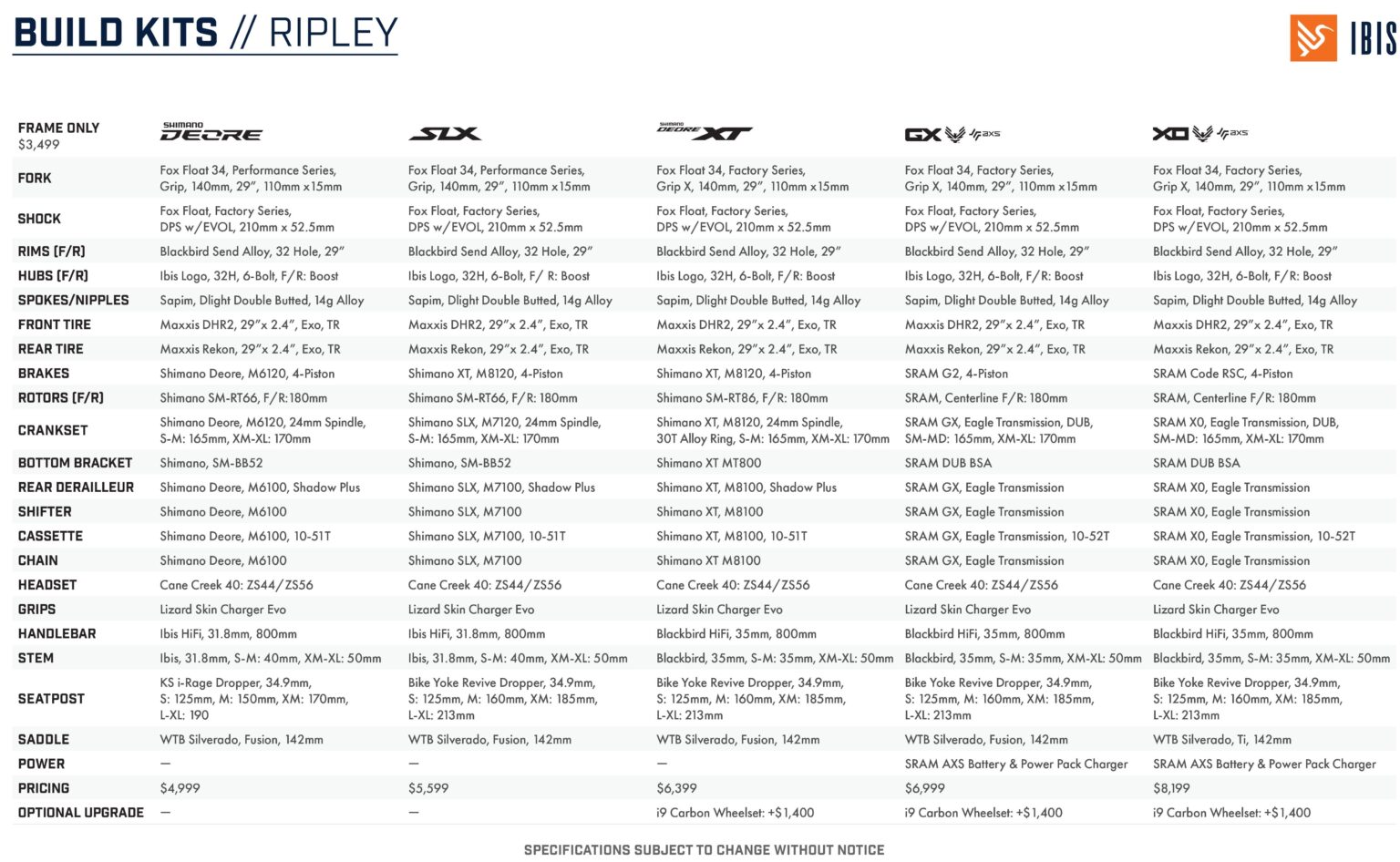
Offered in either Green Flash or Blue Hour, the Ripley will be offered in complete builds starting at $4,999 or as a frame only. Three Shimano builds will be offered, along with two SRAM Eagle Transmission builds. The Ibis x i9 Carbon wheelset as tested adds another $1,400.
First Impressions
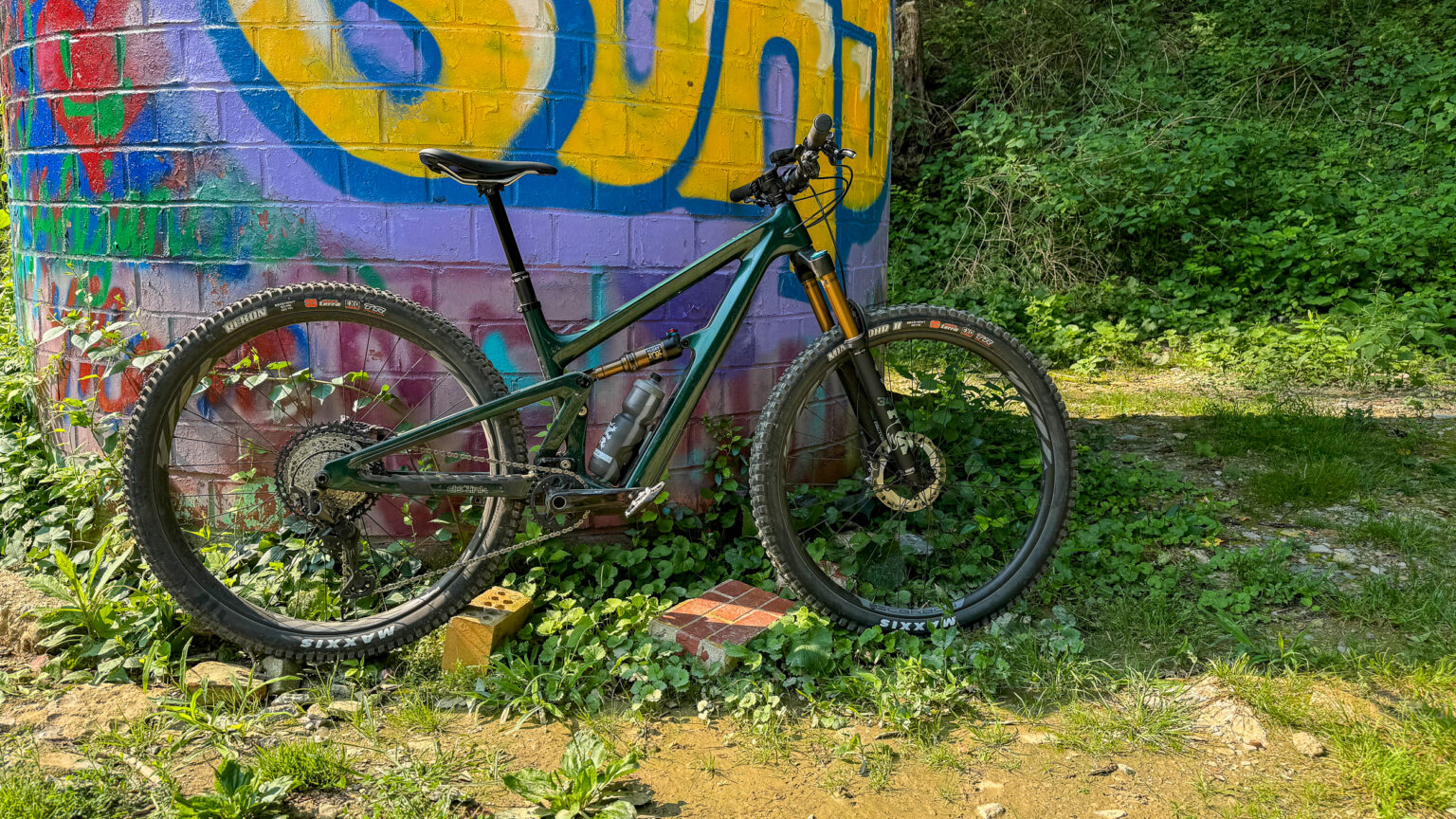
I wasn’t sure about changing the Ripley at first, but after a day dialing it in, it’s clear that Ibis has done their homework. I feel that it’s important though to point out that this is definitely a different bike. Ripley v5 is a new-school trail bike with a slacker head tube angle, steeper seat tube angle, and longer reach that is more playful and capable out on the trail. Now that Ibis offers the Exie for the XC crowd (and those that prefer a steeper head tube angle), it seems obvious that Ibis would bulk up the Ripley.
I always loved how the Ripley v4 handled old-school XC trails, but after riding the v5 on those same trails, I found myself having more fun with a few adjustments. The slacker front end and longer reach means putting more weight over the front end to rail corners, and rather than picking your way through roots and rocks, the v5 urges you to just jump over them. Yet the v5 is such an efficient pedaler that the ‘firm’ setting on the Fox Float shock is unnecessary for anything other than pavement. So far, I’ve spent most of my time riding the bike in the Open-2 setting which is still very efficient and controlled on root-filled trails.
I think at one point I was comparing the v4 to another bike and stated that the Ripley v4 wouldn’t be my first choice to take to areas with more aggressive terrain since it just felt a touch short on travel and geo – the v5 absolutely changes that. Especially when you consider that you can turn it into a Ripmo with the right parts.
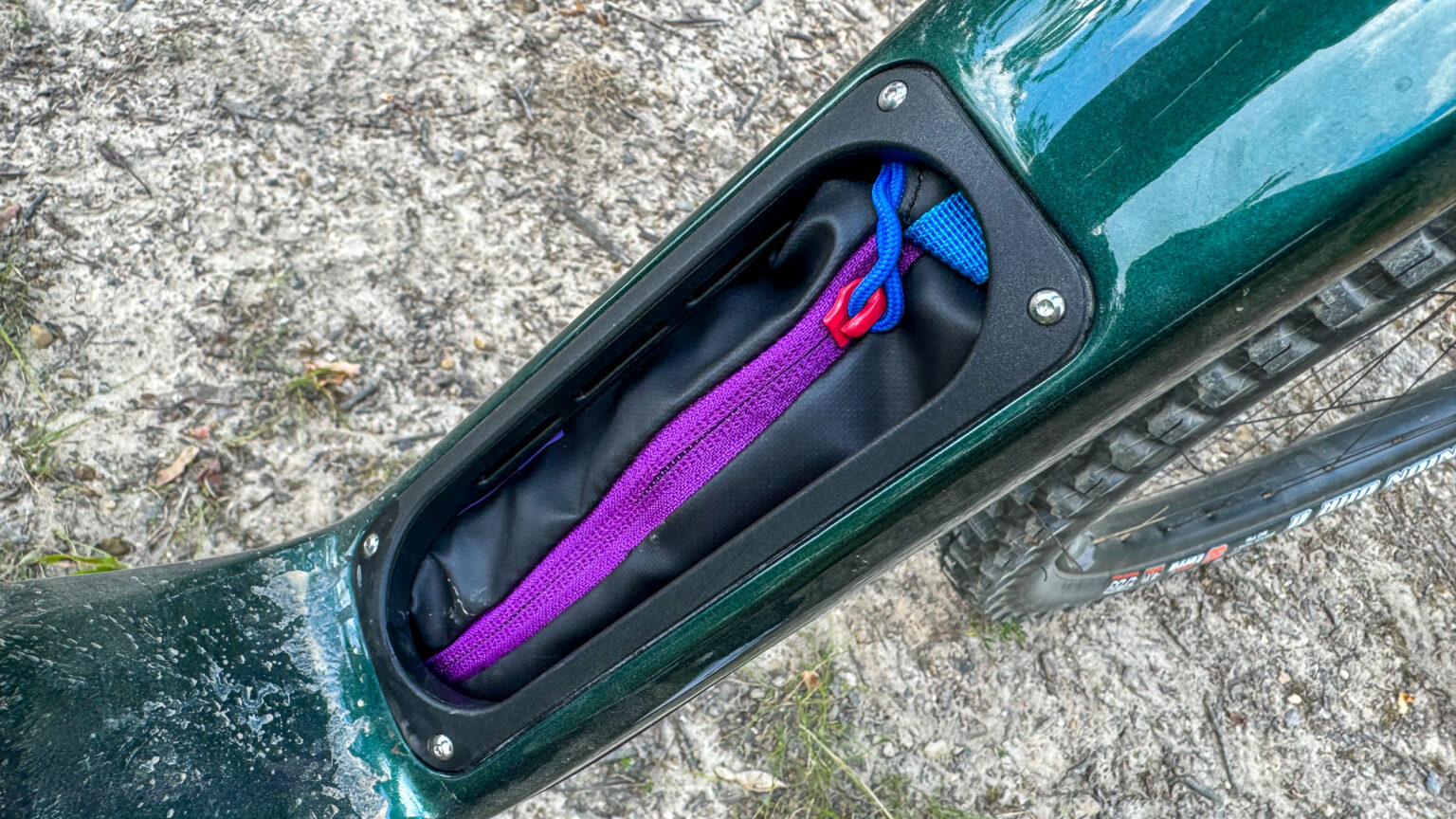
That’s before we even get to the STOW system. Still a holdout on internal frame storage? Once you use the storage system on the new Ripley, there’s no going back. Ibis seems to have addressed all the issues associated with internal storage: the door is super easy to open and close, the STOW bags keep everything protected and rattle-free, and adequate sealing keeps the internals dry. Being able to keep all the essentials you need in your downtube so the bike is ready to go at a moment’s notice will change how you prep for rides, and what you feel you need to carry on your back or in your pockets.
I have just a few weeks on the Ripley v5, and while it’s a big departure from the previous model, it’s packed with features that make it an easy candidate for Bike of the Year. Time will tell.

